
Amicus Report
E-Discovery Report
Insurance Coverage Report
Legal Malpractice Report
Legislative Report
Medical Malpractice Report • Michigan Court Rules Report Plus • Member News • Schedule of Events
• Member to Member Services • Welcome New Members
Volume 40, No. 2 | 2024 Promoting Excellence in Civil Litigation Affinity Bar Spotlight Reports •
•
•
•
•
•























Martin WEISMAN Bingham Farms MICHIGAN CHAPTER Alan KANTER Bloomfield Hills Ed PAPPAS Troy The following attorneys are recognized for Excellence in the field of Alternative Dispute Resolution Gene ESSHAKI Detroit Check available dates or schedule appointments online directly with Academy Members - for free. Visit www.MichiganMediators.org/dateselector
Fred DILLEY Grand Rapids
Paula MANIS Lansing
Robert RILEY Dearborn
Richard HURFORD
Robert WRIGHT Grand
The National Academy of Distinguished Neutrals is an invitation-only association of the top-rated mediators & arbitrators throughout the US, and proud partner of the national defense and trial bar associations. For more info, visit www.NADN.org/about NADN is proud creator of the DRI Neutrals Database www.DRI.org/neutrals
Lee HORNBERGER Traverse City
Troy Paul MONICATTI Troy
Rapids
Thomas BEHM Grand Rapids
Lee SILVER Grand Rapids
Betty WIDGEON Ann Arbor
Earlene BAGGETT-HAYES Laura ATHENS Farmington Samuel McCARGO Detroit Katherine SIMPSON Ann Arbor Timothy SHERIDAN Grand Rapids
James FISHER Grand Rapids William GILBRIDE Detroit Peter HOUK
Lansing


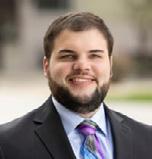
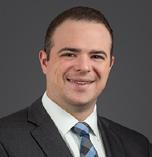
Editor
Katharine Gostek katharine.gostek@kitch.com
Associate Editor
Jesse Depauw jesse.depauw@tnmglaw.com
Associate Editor Jeremy Orenstein jorenstein@hilgerhammond.com
Associate Editor Thomas Lurie thomas.lurie@ bowmanandbrooke.com
P.O. Box 66 Grand Ledge, Michigan 48837
Phone: 517-627-3745 • Fax: 517-627-3950 mdtc.org • info@mdtc.org
MDTC Officers:
Michael J. Jolet, President
John C. W. Hohmeier, Vice President
Frederick V. Livingston, Treasurer
Richard J. Joppich, Secretary
John Mucha III, Immediate Past President
MDTC Board of Directors:
Regina A. Berlin
Sarah E. Cherry
Michael J. Cook
Daniel Cortez
Javon R. David
David F. Hansma
Veronica R. Ibrahim
Thomas Isaacs
Megan Mulder
Edward P. Perdue
Nathan Scherbarth
A. Tony Taweel
Promoting Excellence in Civil Litigation All articles published in the Michigan Defense Quarterly reflects the viws of the individual authors. The Quarterly always welcomes articles and opinions on any topic that will be of interest to MDTC members in their practices. Although MDTC is an association of lawyers who primarily practice on the defense side, the Quarterly always emphasizes analysis over advocacy and favors the expression of a broad range of views, so articles from a plaintiff’s perspective are always welcome. Author’s Guidelines are available from Michael Jolet. Michigan Defense Quarterly is a publication of the MDTC. All inquiries should be directed to Madelyne Lawry, (517) 627-3745. 4 President’s Corner 5 Affinity Bar Spotlight 7 Amicus Report Lindsey Peck 10 E-Discovery Report Jay Yelton 14 Insurance Coverage Report Drew Broaddus 19 Legal Malpractice Report David C. Anderson and James J. Hunter 21 Legislative Report Zach Larsen 23 Medical Malpractice Report Kevin McQuillan 26 Michigan Court Rules Report Sandra Lake 6 Member News 25 Schedule of Events 35 Member to Member Services 40 Welcome New Members Cite this publication as 40-2 Mich Defense Quarterly TABLE OF CONTENTS Volume 40, No. 2 | 2024
President's Corner
By: Michael Jolet, Hewson & Van Hellemont, PC mjolet@vanhewpc.com
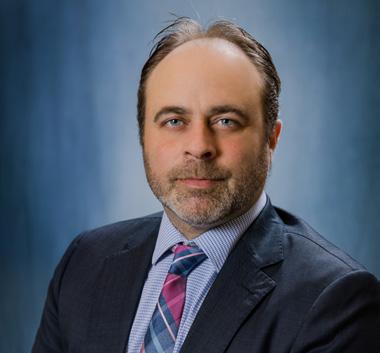
Dear Members,
First and foremost, I am pleased to congratulate the recipients of the 2024 Awards as follows: 2024 Young Lawyers Golden Gavel Recipient, Genavieve Lee; 2024 Excellence in Defenses Award Recipients, José Brown and Dora Brantley; 2024 Judicial Award Recipient, the Honorable Julie Gatti; and 2024 John P. Jacobs Appellate Advocacy Award Recipient, Tim Diemer. Congratulations to all of our recipients and thank you for your contribution to our organization and our legal community. You all inspire current and future generations by demonstrating an unfailing commitment to defense litigation.
Michael J. Jolet is a Co-Managing Partner and President at Hewson & Van Hellemont, P.C. Mr. Jolet graduated from Wayne State University with a B.A. in 2001. He attended law school at The University of Detroit Mercy School of Law and graduated cum laude with a Juris Doctor in 2004. Mr. Jolet was admitted to the State Bar of Michigan in 2004.
Michael J. Jolet is a Co-Managing Partner and President at Hewson & Van Hellemont, P.C. Mr. Jolet graduated from Wayne State University with a B.A. in 2001. He attended law school at The University of Detroit Mercy School of Law and graduated cum laude with a Juris Doctor in 2004. Mr. Jolet was admitted to the State Bar of Michigan in 2004.
Michael specializes in insurance defense and has handled thousands of cases involving a variety of complex issues in first party, uninsured motorist and third party civil cases.
Michael specializes in insurance defense and has handled thousands of cases involving a variety of complex issues in first party, uninsured motorist and third party civil cases.
Michael joined Hewson & Van Hellemont, P.C. in May 2011. Prior to joining HVH, he was a Partner at an insurance defense law firm in Michigan.
Michael joined Hewson & Van Hellemont, P.C. in May 2011. Prior to joining HVH, he was a Partner at an insurance defense law firm in Michigan.
Mr. Jolet’s passion and involvement in all of his files has earned him the trust of his clients, and his aggressive and no-nonsense approach allows him to effectively litigate each case for his clients.
Mr. Jolet’s passion and involvement in all of his files has earned him the trust of his clients, and his aggressive and no-nonsense approach allows him to effectively litigate each case for his clients.
I hope you had a wonderful Holiday season. We are excited to share our mission, goals and vision and plans for next year. We have a multitude of conferences, events, and outings for you to engage, connect, and collaborate with other members and people in our legal community. I encourage you to attend as many of these as you can and talk about them amongst your colleagues. These types of interactions with colleagues will not only expand our membership, but bring some fresh ideas to our organization.
I am constantly impressed how this organization continues to look into the future to provide old and new members with the resources, knowledge and tools that will help everyone grow profoundly both professionally and personally. A few of my own personal goals as President for 2024 is to spread the word of the MDTC and explore new ways for networking. I would hope to assist in bringing in new members to grow our organization. I believe that we can provide leadership and mentoring skills to our new members that will promote them to be future leaders in our legal community.
I would like to highlight a few of our upcoming events and truly hope to see you in attendance. Here are a few that are just around the corner. Our Reginal Meet & Greet will be held at The B.O.B. in Grand Rapids on January 19, 2024. We will host the Legal Excellences Awards at the beautiful and historic Gem Theater in Detroit on March 21, 2024. These events showcase our own and unique experiences within our practice of defense litigation.
As we embark on 2024, I want to express my gratitude and appreciation for your commitment, enthusiasm, dedication and expertise to our goals and mission. You are what makes our organization successful. I look forward to seeing you soon.
Thank you for your continued trust, dedication and support.
Michael J. Jolet, President
4 Michigan Defense Quarterly

Affinity Bar Spotlight
Wolverine Bar Association
Much work must be done to improve diversity, equity, and inclusion in the legal profession. One crucial step is to elevate diverse voices and provide a more inclusive environment. In this issue, the MDTC is honored to use its platform to promote the mission of the Wolverine Bar Association through a question and answer with its Immediate Past President – Allen W. Venable:
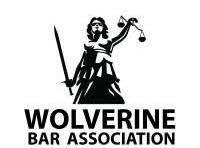
When did you join the Wolverine Bar Association? I joined in 2003, so this year marks my 20th year of being a WBA supporter.
What compelled you to get involved with the Wolverine Bar Association?
My employer at the time hosted the WBA’s monthly meetings. So, I was able to attend WBA monthly meetings and gain exposure at my workplace with the encouragement of my employer.
What is the mission statement of the Wolverine Bar Association?
Its mission is to help African Americans exert greater influence in the law and community. This includes improving relations with other bar associations, inspiring confidence in and fellowship among its members, promoting the administration of justice and reform in the law, and providing information to indigent members of the African American community.
What are the criteria for membership?
There are several membership categories, inclusive of law students, legal assistants, law graduates, judges, attorneys, etc. There are no criteria related to race, gender, sex, religion, or ethnicity.
How does membership with the Wolverine Bar Association benefit legal professionals?
Membership with the WBA facilitates the uplift of African American attorneys in the legal profession. Every member is presented with an opportunity to benefit from and engage in outreach programs, fellowships, resource sharing, educational programs, career development, community outreach, networking, mentoring, and advocacy focused on that goal. Membership is also an initial requirement for inclusion in our email communication network.
Allen W. Venable Venable Law, PLLC avenable@venablelawpllc.com

Allen W. Venable is the owner of Venable Law, PLLC. His practice areas are Business, Employment, and Tax Law, Real Estate and Construction Law, Estate Planning and Probate Law, and Personal Injury Law.
Prior to Venable Law, Mr. Venable worked six years as a business, construction, and real estate litigator for a large Detroit law firm. He also worked as a clerk for the Honorable Judge Mary A. Gooden Terrell, Superior Court, Washington, D.C.; for the Michigan Department of Career Development in the Bureau of Labor Statistics; and for the Secretariat of the Commission for Labor Cooperation under NAFTA as a legal writer on Mexican, Canadian, and United States labor and employment law.
Mr. Venable has served on the board of directors of several nonprofit organizations, including the Detroit Urban League and National Bar Association. He also conducts presentations and workshops on a variety of legal topics. He has presented as a panelist and led workshops for Miller Brewing Company’s Urban Entrepreneur Series, the Booker T. Washington Business Association Keys to Business Success Conference, the International Detroit Black Expo, Inc., and the Detroit Entrepreneurship Institute, Inc. He currently conducts workshops on business ethics, commercial agreements, and business basic for entrepreneurs and non-legal professionals.
5 Volume 40, No. 2 | 2024
Interview with Allen Venable, cont.
Are there special events, volunteer opportunities, committee groups, or community relationships that the Wolverine Bar Association is particularly proud of?
Our pipeline programs assist students (from high school through law school) with mentoring, LSAT scholarships, law school tuition scholarships, summer clerkships, judicial externships, and bar exam preparation. Our judicial ratings and judicial appointment committees, respectively, educate on the qualifications of judicial candidates seeking elected office and facilitate the increase of African Americans on the bench. Our legal education programs assist the public with attorney referrals and legal information. And lastly, for over 60 years, we have hosted the Barristers Ball, which is our signature charity fundraising gala.
What inspired the establishment of the Wolverine Bar Association?
African American attorneys needed an organization that supported their success. At the WBA’s initial founding in 1919, African American attorneys were barred from the American Bar Association due to race, and we faced both racial hatred and racial segregation that limited our ability to conduct a viable legal practice.
As a leader of the Wolverine Bar Association, how do you define “diversity, equity, and inclusion”?
As an African American, I view those words as terms of art meant to describe certain outcomes related to bringing historically excluded groups into full citizenship through the elimination of civil, economic, and social barriers in the workplace and beyond.
What are some meaningful actions that law firms and legal employers can take to improve diversity, equity, and inclusion in their workplace (without simply “checking a box”)?
Help historically excluded groups overcome barriers in your workplace and the legal profession. Reserve an intern or extern slot for a WBA student in your summer class or law department. Encourage your workers to satisfy their yearly pro bono commitment by volunteering with the WBA. Join the WBA. Sponsor a scholarship, our law student reception, the Barristers Ball, or the bar passage program. These types of actions, in combination over time, reshape your culture and foster a climate conducive to recruiting and retaining African American attorneys.
How can individuals support the Wolverine Bar Association, its mission, and its members?
Joining the WBA, participating in a program or charity event, and encouraging your employer and colleagues to do the same are all great ways to support the WBA.
What else would you like the Michigan Defense Quarterly readers to know about the Wolverine Bar Association?
We partner with many organizations to accomplish our work, and we welcome the opportunity to partner with your organization.
How can Michigan Defense Quarterly readers reach out if they are interested in joining or learning more about the Wolverine Bar Association?
Our telephone number is (313) 962-0250. Our email address is info@wolverinebar.org. Our website is www.wolverinebar.org
MEMBER NEWS
Work, Life, and All that Matters
Member News is a member-to-member exchange of news of work (a good verdict, a promotion, or a move to a new firm), life (a new member of the family, an engagement, or a death) and all that matters (a ski trip to Colorado, a hole in one, or excellent food at a local restaurant). Send your member news item to Katharine Gostek (katharine.gostek@kitch.com).
6 Michigan Defense Quarterly

Amicus Report
Lindsey A. Peck, Gordon Rees Scully Mansukhani, LLP lindsey.peck@ceflawyers.com
The Past: Recent Decisions
Premises Liability
Kandil-Elsayed v. F&E Oil and Pinsky v. Kroger were the catalysts for upheaval to the existing landscape of premises-liability law. In an almost 50-page majority opinion authored by Justice Clement and joined by Justice Bernstein, Justice Cavanagh, Justice Welch, and Justice Bolden, the Supreme Court overruled Lugo v. Ameritech Corporation—longstanding precedent that shaped and solidified our understanding of the open-and-obvious doctrine for upwards of three decades.
The writing was on the wall, and has been for a couple years. After the spirited debate among the concurring and dissenting opinions in Estate of Livings v. Sage Investment Groups—and, in particular, the plea from then Chief Justice McCormack to “one day consider the legacy of Lugo”—many viewed the open-and-obvious doctrine as a ticking time bomb.
The Supreme Court did not retire the open-and-obvious doctrine altogether. But, gone are the days in which the open-and-obvious doctrine occupied the element of duty, presented a question of law, and facilitated early dismissal of an unmeritorious claim. The Supreme Court relegated the open-and-obvious doctrine to a mere factor to consider in the context of comparative fault. The Supreme Court replaced the special-aspect exception with the anticipation-of-harm exception in the Restatement (Second) of Torts.
The Supreme Court acknowledged in a footnote that the open-and-obvious doctrine may present a question of law if the facts concerning breach are not in dispute. Beyond the footnote, the Supreme Court did not extend much of an olive branch to the defense.

Lindsey A. Peck
Lindsey Peck’s well-rounded and versatile skill set has enabled her to wear many hats throughout her career— litigator, trial attorney, and appellate practitioner. She has litigated countless cases that resulted in summary disposition or summary judgment in favor of her clients. She has also tried multiple cases, all of which resulted in defense verdicts in favor of her clients. For the past few years, she has focused on appellate practice. Her eye for detail and penchant for writing have been the key to her success in both state and federal appellate courts.
In addition to her experience in general liability and personal injury defense, Lindsey has extensive experience in municipal law. She has defended municipal agencies, departments, appointed and elected officials, officers, and employees against a broad spectrum of claims, including statutory claims, civil rights claims, tort claims, zoning and land use claims, employment claims, and contract claims arising out of public works infrastructure projects and improvements. She has also advised boards, commissions, councils, departments, and other levels of government on a wide array of issues that arise in the context of municipal governance.
In an almost 50-page majority opinion authored by Justice Clement and joined by Justice Bernstein, Justice Cavanagh, Justice Welch, and Justice Bolden, the Supreme Court overruled Lugo v. Ameritech Corporation longstanding precedent that shaped and solidified our understanding of the open-and-obvious doctrine for upwards of three decades.
Lindsey has also handled legal matters on behalf of public utility companies. She has litigated contract claims arising out of indemnity provisions and release agreements, as well as tort and personal injury claims.
Lindsey can be reached at lindsey. peck@ceflawyers.com or 248-663-7710.
7 Volume 40, No. 2 | 2024
Amicus Report,
No Fault
Wilmore-Moody v. Zakir concerns the interplay between rescission and non-economic relief under MCL 500.3135. The insured sued the insurer and the tortfeasor. The insurer counter-sued for rescission of the policy based on pre-procurement fraud. The trial court granted rescission ab initio and entered summary disposition in favor of the insurer.
The tortfeasor then came out of the woodwork and sought summary disposition based on MCL 500.3135, which precludes a party from recovering non-economic relief if the party did not have in effect the required no-fault insurance at the time of the accident. The tortfeasor argued that by virtue of rescission, the policy was non-existent and the vehicle was uninsured at the time of the accident.
Not so, the Court of Appeals said. The Court of Appeals held that rescission is a legal fiction intended to provide a contractual remedy, not to alter the past. In May, the Supreme Court agreed and affirmed the holding of the Court of Appeals. The Supreme Court held that post-accident rescission of a policy does not trigger the exclusion in MCL 500.3135. The Supreme Court reasoned that rescission is an equitable and optional remedy in contract, which neither alters the reality that the insured held the required security at the time of the accident nor provides a defense to third-party liability for non-economic relief.
Medical Malpractice
In Scarcella v. Pollack, the Supreme Court held that a medical-malpractice complaint does not toll the statutory limitations period if unaccompanied by an affidavit of merit, even if otherwise filed on time. After the concurrence in Castro v. Goulet and Progress Michigan v. Attorney General, many believed that Scarcella was on the chopping block. And after oral argument, everyone knew that the days of Scarcella were numbered.
In July, the Supreme Court overruled Scarcella. The Supreme Court determined that an affidavit of merit is not required to commence a medical-malpractice action and toll the statutory limitations period. Instead, the Supreme Court held, the usual tolling mechanism applies—when the complaint is filed, the statutory limitations period is tolled.
The affidavit of merit requirement is still mandatory, the Supreme Court observed, and the failure to comply is still grounds for dismissal—just not on statutory limitations grounds.
The Present: Upcoming Decisions
The Supreme Court entertained MOAA in Saidizand v. Gojet Airlines, Adilovic v. Monroe, and Rayford v. American
House Roseville 1—a trilogy of employment cases that place the continued vitality of Timko v. Oakwood Custom Coating in jeopardy. These cases were argued in the Supreme Court on November 8, 2023.
One issue in Adilovic is whether limitations clauses in employment applications are part of binding employment contracts. The other issue in Adilovic is whether contractual limitations clauses for disability-retaliation claims violate public policy. The issue in Rayford is whether contractual limitations clauses for civil-rights claims violate public policy. And the issue in Saidizand is whether discrimination claims under the Elliott-Larsen Civil Rights Act may be subjected to mandatory arbitration as conditions of employment.
The Future: New Opportunities
Over the past few months, the Supreme Court invited MDTC to submit amicus briefs on a number of jurisprudentially-significant issues.
The MDTC Amicus Committee accepted an invitation to submit an amicus brief in El-Jamaly v. Kirko Manix Construction. The issues involve the duty of an electric utility with respect to an unforeseeable event involving a power line, as well as the liability of a general contractor under the common work area doctrine. Brandon Schumacher of Foster Swift Collins volunteered to author the amicus brief on behalf of MDTC. MOAA is scheduled for January 10, 2024.
The MDTC Amicus Committee voted in favor of submitting an amicus brief in Carter v. DTN Management Company. The issue involves the legality of the administrative orders in
Over the past few months, the Supreme Court invited MDTC to submit amicus briefs on a number of jurisprudentially-significant issues.
which the Supreme Court tolled statutes of limitations and other case-initiation deadlines during the emergency period of the COVID-19 pandemic. Jonathan Koch of Smith Haughey Rice & Roegge volunteered to author the amicus brief on behalf of MDTC. Oral argument is scheduled for Janaury 11, 2024, the same day as Armijo v Bronson Methodist Hospital, which also involves in interpretation of the Supreme Court’s administrative orders involving COVID-19 tolling.
The MDTC Amicus Committee accepted an invitation to submit an amicus brief in St. Clair v. XPO Logistics. The issues involve the relation-back provision in the non-party-at-fault statute and the misuse defense in the product-liability statute.
8 Michigan Defense Quarterly
cont.
Lindsey Peck of Gordon Rees Scully Mansukhani volunteered to author the amicus brief on behalf of MDTC.
MDTC Amicus Committee accepted an invitation to submit an amicus brief in Stegall v. Resource Technology Corporation. The issues involve the continued vitality of public-policy claims for retaliation based on statutes with anti-retaliation provisions, as well as statutory preemption of public-policy claims. Adam Ratliff of Warner Norcross + Judd volunteered to author the amicus brief on behalf of MDTC.
The MDTC Amicus Committee accepted an invitation to submit an amicus brief in Progressive v. Pena. The issue involves the effect of the heightened liability coverage limits on liability policies delivered or issued for delivery before the effective date but still in effect after the effective date. Drew Broaddus of Secrest Wardle volunteered to author the amicus brief on behalf of MDTC.
The MDTC Amicus Committee accepted an invitation to submit an amicus brief in True Care Physical Therapy v. Auto Club Insurance Company. The issue involves the nature and exclusivity of the method for administratively appealing or obtaining judicial review of utilization review determinations.
The MDTC Amicus Committee accepted an invitation to submit an amicus brief in C-Spine v. Progressive. The issue involves standing and status as real party in interest in the context of a pre-suit assignment to a third party and post-suit assignment back to a plaintiff. John Hohmeier of Scarfone & Geen volunteered to author the amicus brief on behalf of MDTC.
*For a more thorough understanding of the facts and issues in the above-discussed cases, members can access MDTC’s amicus briefs on MDTC’s website.
Thank you to our Winter 2023 Conference Sponsors!
held on November 3, 2023
at Sheraton Detroit Novi Hotel, Michigan
Axiom Evaluations
Collins Einhorn Farrell PC
Data Surveys Inc
Dawda Mann Mulcahy & Sadler PLC
Ernest Chiodo PC
ESi
ExamWorks
Exponent
Foley Baron Metzger & Juip PLLC
View
Foster Swift Collins & Smith PC
Hewson & Van Hellemont PC
Kitch Attorneys & Counselors, PC
LCS Record Retrieval
Lexitas Legal
Lingual Interpretation Services, Inc.
ManageAbility IME, Inc
Michigan Evaluation Group
Novara Tesija & Catenacci PLLC

Rudick Forensic Engineering, Inc
S-E-A Ltd.
Shadow Investigations
Sherlock Investigations
Smith Haughey Rice & Roegge
SuperiorX Investigations
Support Claim Services
Trauma Trained Chiropractors
Veritext Legal Solutions
9 Volume 40, No. 2 | 2024
Amicus Report, cont.
all Annual Meeting and Winter Conference photos at mdtc.org/mdtc_gallery/winter-meeting-2023/

E-Discovery Report
By: B. Jay Yelton, III, Warner Norcross + Judd LLP jyelton@wnj.com
Attorney Supervision and Monitoring of Custodian Self-Collection of ESI is Essential
Lyman v Ford Motor Company, Case No. 2023 WL 4231713 (ED Mich. June 28, 2023)
In this case, the plaintiffs filed a putative class action against Ford Motor Company, alleging breach of contract and consumer protection claims. The lawsuit concerned a certain engine’s inability to maintain the correct level of engine oil, as outlined in the owner’s manual. The plaintiffs requested an electronic search of records related to four custodians. The District Court ruled in favor of the plaintiffs, granting their motion to compel Ford to undertake electronic searches of records associated with the specified custodians.
First, the Court emphasized that attorneys cannot simply rely on custodian selfcollection of ESI. Instead, the Court stated that counsel must ensure the accuracy of the client’s response to document requests, ensuring that all appropriate sources of data were searched, and that responsive ESI has been collected, reviewed, and eventually produced. Proper oversight and testing of the accuracy of self-collected ESI are essential in the discovery process.
Next, the Court noted the importance of cooperation between opposing counsel and transparency in all aspects of preservation and production of ESI. The Court held that a party’s search protocol is not privileged and rejected the notion that a party’s search methodology is protected by the attorney-client privilege or workproduct doctrine. “It would go against reason to find that the steps a party takes to identify responsive documents are privileged when those steps result in an evasion of discovery obligations by not collaborating on their discovery and ESI search strategies.” Lyman, at *1, citing Vasoli v Yards Brewing Co, LLC, 2021 WL 5045920, at *2 (ED Pa Nov. 1, 2021).
Based on Ford’s vague description of its search methodology and limited document production from key custodians, the Court ordered the parties to engage in transparent and cooperative discussions about search terms and methodology, with the expectation that responsive documents would be produced.
The Court held that a party’s search protocol is not privileged and rejected the notion that a party’s search methodology is protected by the attorneyclient privilege or work-product doctrine.
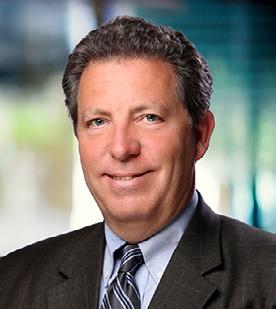
B. Jay Yelton, III, after 30+ years as a litigator and manager of eDiscovery teams, Jay now serves as a mediator and discovery special master where he assists parties to (a) solve disputes quickly, cost- effectively and confidentially and/or (b) design proportional discovery plans and resolve discovery disputes. Jay is recognized by Best Lawyers in America for both eDiscovery and Litigation, and he serves as Chairperson for the Detroit Chapter of BarBri’s Association of Certified eDiscovery Specialists, as a member of and project leader for E.D.R.M. Global Advisory Council and as a member of and team leader for the Sedona Conference.
10 Michigan Defense Quarterly
E-Discovery Report, cont.
PRACTICE TIP:
Self-collection without proper supervision typically leads to trouble. Counsel needs to oversee the preservation, collection, and production of ESI in order to accurately represent that “reasonable steps” have been taken to fulfill their client’s discovery obligations.
Attorney Needs to Assure Preservation & Protection of Metadata
Hoehl Family Foundation v Roberts, 2023 WL 3271517 (D Vt. Apr 13, 2023)
This case involves a lawsuit initiated by the Hoehl family’s foundation against investment manager individuals and entities over a disputed $1 million transaction that resulted in alleged financial loss and a substantial tax penalty. Another lawsuit filed in New Hampshire state court by a related entity also concerned the same transaction and involved some of the same defendants. Both cases shared a joint discovery process. In the Vermont action, the Court addressed a motion to compel the production of metadata that had been partially altered due to changes in file locations, carried out in anticipation of litigation.
The plaintiffs asserted that the defendants produced inaccurate or incomplete metadata for approximately 10,000 documents in its 400,000-page production. The defendants explained that changes to servers and file organization, along with movement of files in preparation for document production, caused discrepancies in the metadata. The plaintiffs proposed that the defendants provide screenshots of the relevant folder structure to help match documents with their source folders, but the defendants declined due to confidentiality concerns. Instead, the defendants provided partial screenshots and a file showing document file paths. However, these efforts were still insufficient to address the metadata issues and certain metadata remained altered due to the movement of files.
Because of this, the plaintiffs filed a motion to compel the defendants to correct the defective production of documents that lacked accurate metadata. The earlier stipulated discovery order in the case required ESI to be provided in a text searchable format, preserving original formatting, file structure, and metadata. The defendants raised two arguments in opposition to the motion. First, they claimed that plaintiffs had waived their objections by not raising them promptly. Second, they argued that producing more metadata would be costly and unnecessary.
The Court rejected both arguments. It found that the plaintiffs had consistently and promptly raised metadata concerns and that the defendants’ assertion of waiver was unfounded. Furthermore, the Court noted the importance of production
of complete metadata, noting that it enhances the functionality of electronic documents, and aids in efficient access, search, and sorting of large volumes of documents. It determined that the request for metadata was reasonable considering that the defendants created the situation by its initial approach to responding to requests. And, as only a portion of the produced documents were affected, the burden and expense of producing accurate metadata was reasonable.
The Court concluded that the defendants had not fulfilled their discovery obligations by failing to provide documents with complete and accurate metadata and directed defendants to supply accurate metadata for the documents identified as lacking proper metadata.
PRACTICE TIP:
Metadata has long been recognized as ESI and subject to a party’s duty to preserve potentially relevant evidence once litigation has been filed or may reasonably be anticipated. Counsel needs to be sure that their client’s preservation and collection efforts do not result in the spoliation of metadata. If internal resources are not available, counsel may need to engage an outside vendor to assist with preservation and collection efforts.
Court Approved Technology Assisted Review for Document Review
Garner v Amazon.com, Inc, 2023 WL 3568055 (WD Wash. May 19, 2023)
This case concerns allegations of passive data collection by Amazon’s digital assistant, potentially violating consumer protection and wiretapping laws. The plaintiffs had requested searches of electronically stored information (ESI) through specific search terms, which the Court approved. Amazon later informed the plaintiffs about its plan to employ TAR (technology-assisted review) tools for document review. The plaintiffs objected, contending that implementing TAR at this point was untimely and inappropriate.
The Court’s ruling underscored the importance of cooperation and transparency when using technology-assisted review to locate and filter electronic documents. The Court rejected the plaintiffs’ objection to introducing TAR after the application of search terms, considering TAR to be a reasonable approach under the circumstances.
The Court referred to the Model ESI Agreement within the district, which endorsed the use of TAR to improve the document production process. The Court critiqued the plaintiffs for refusing to discuss TAR when Amazon proposed its use, emphasizing the value of such discussions in the overall review process.
11 Volume 40, No. 2 | 2024
E-Discovery Report, cont.
Furthermore, the Court highlighted the producing party’s responsibility to propose suitable technology and methodologies for document review, while also considering input from the requesting party. Addressing the plaintiffs’ concerns about the low production rate attributed to TAR, the Court clarified that the low rate wasn’t solely due to TAR.
In the end, the Court denied the plaintiffs’ motion to prohibit the use of TAR, supporting the effectiveness of technologyassisted review in expediting document evaluation and ensuring compliance with discovery requirements.
PRACTICE TIP: In the era of ESI, discovery, by necessity, must be a collaborative effort between parties. Objecting after the fact to a party’s use of accepted technology to enhance efficiency during discovery will almost always be frowned upon by a Court in the absence of proof that the methodology was not reasonable under the circumstances.
Sanctions Awarded for Failure to Preserve Chat Communications
In re Google Play Store Antitrust Litigation, --- F. Supp. 3d ----, 2023 WL 2673109, (N.D. Cal. Mar. 28, 2023)
This Multi District litigation action encompasses several antitrust cases against Google’s Play Store practices, filed by numerous plaintiffs, including Epic Games, Inc., Attorneys General of 38 States and the District of Columbia, consumer plaintiffs, and the Match Group plaintiffs. The plaintiffs claim that Google’s exclusionary conduct in monopolizing the Android app distribution market has harmed them.
Coordination of discovery was directed by the Court to contain costs and was mostly successful except for a dispute concerning a lack of Chat messages in Google’s document productions, leading to questions about Chat preservation. Google revealed that Google Chats are typically deleted after 24 hours and that it hadn’t suspended its auto-deletion for the litigation, instead letting employees decide which Chats to preserve.
Google’s decision prompted the plaintiffs’ motion for Rule 37 sanctions in October 2022, leading to extensive briefings and an evidentiary hearing in January 2023. The Court received documentary evidence, testimony, and arguments. Additional Chats were produced in February 2023, enhancing the record.
The core of the dispute was whether Google adequately preserved Chat communications. Google was within its rights to establish an internal instant messaging service with its own retention period, but the Court found its conduct after the lawsuits were filed troubling, given its unqualified obligation to preserve evidence. Google was expected to preserve evidence as soon as litigation became foreseeable, yet it failed to do so effectively.
The Court found that Google’s handling of Chat communications fell short of its preservation duties. The Court noted that Google was experienced in litigation, with employees trained in proper communication practices. Its “Communicate with Care” training discouraged Chat usage for official communication due to retention concerns, instead favoring email. Google’s lack of candor with the Court and the plaintiffs was also concerning. Despite Google’s assurance that it had taken appropriate steps to preserve relevant evidence, it did not disclose its Chat practices until much later, after the Rule 37 motion was filed.
The Court concluded that Google did not take reasonable steps to preserve ESI and determined that its behavior appeared intentional given its decision not to check up on employee decisions regarding preservation. The Court also noted that Google’s intentional nondisclosure of its Chat retention practice until compelled to address the issue raised additional concerns.
The Court determined that Google’s conduct amounted to an “intent to deprive” under Rule 37(e)(2) thereby supporting a presumption that the lost Chat evidence was unfavorable to Google. Google argued that it had agreements with the plaintiffs to limit discovery and that those agreements negated any finding of spoliation. The Court rejected Google’s arguments finding that any agreement between the parties to limit discovery matters were invalid as plaintiffs had incomplete knowledge regarding Google’s Chat preservation practices at the time the agreements were made.
Despite its finding of an “intent to deprive,” the Court found terminating sanctions against Google were not warranted as the antitrust case would not be decided based on lost Chat communications. An appropriate non-monetary sanction would be determined in further proceedings. As for monetary sanctions, Google was directed to cover the plaintiffs’ reasonable attorneys’ fees and costs associated with the Rule 37 motion. The parties were instructed to meet and confer to agree on attorneys’ fees and costs or identify areas of disagreement for the Court to resolve.
PRACTICE TIP:
Allowing the client to self-collect is bad. Allowing the client to self-preserve is worse. If counsel does not oversee preservation and potentially relevant information is deleted, it radically increases the likelihood a Court will find an “intent to deprive” under Rule 37(e)(2)—especially if combined with a lack of candor regarding the client’s preservation efforts.
Unless Particular Format Requested, Data Only Needs to be Produced in its Ordinary or Reasonably Usable Form
12 Michigan Defense Quarterly
Mills v Steuben Foods, Inc, 2023 WL 179579 (WD NY Jan. 13, 2023)
In this employment discrimination case, the plaintiff requested documents from defendants, which included his former employer. The defendants provided 5,295 documents (111,896 pages) but without text-searchability. The plaintiff moved the Court for an order to compel the defendants to produce a production log “detailing by Bates Nos. which documents are responsive to which of plaintiff’s Requests” and to re-produce documents in a text-searchable format. The Court denied these requests, citing Federal Rule of Civil Procedure Rule 34(b)(2)(E)(ii), which requires producing electronically stored information in its ordinary or reasonably usable form if no specific form is specified. He noted that the plaintiff did not request a particular format, so the defendants were not obligated to provide the requested format unless the documents weren’t originally maintained that way and were not reasonably usable.
As for the plaintiff’s claim that the defendants’ “document dump” was improper due to a failure to provide an adequate production log, the Court noted that the “defendants provided a production log for the e-mail ESI setting forth the Bates ranges of the different categories of e-mails in the production. Plaintiff fails to explain why the production log produced by defendants does not render defendants extensive e-mail production ‘reasonably usable.’”
The Court emphasized that the plaintiff’s request was for “all” records and that the defendants’ production log noting Bates number ranges sufficed for their extensive production. The Court cited other cases that found similar aides sufficient when dealing with large quantities of ESI in discovery.
Regarding text-searchability, the defendants claimed their PDFs were text-searchable, while the plaintiff disagreed. The Court clarified that federal rules do not mandate text-searchability. Rather, the rules require only that documents to be “reasonably usable.” The Court ordered both parties to collaborate with IT professionals to address technical issues.
PRACTICE TIP:
Unless specified by the requesting party, the Federal Rules of Civil Procedure do not require that ESI be produced in any particular format, just that the format be “reasonably useable.” One way to avoid any controversy over production formats is for the parties to enter into an ESI protocol that addresses production formats and other technical issues. In Michigan, the Eastern District has issued a Model ESI protocol that can be adapted to fit the needs of the particular case.
Redactions for Relevance are Permissible in Some Cases
Aluminum Warrick, LLC v US Magnesium LLC, 2023 WL 2482933 (SD NY Feb. 27, 2023)
The plaintiff brought a lawsuit against the defendant for failing to fulfill a supply contract to provide magnesium. The defendant relied on the defense of force majeure due to unexpected equipment failures that made complying with the contract impossible.
The plaintiff objected to the defendant’s production of redacted documents and requested unredacted reproductions, arguing that redactions for relevance are disfavored when a protective order is in place. The defendant contended that the redacted information was irrelevant and competitively sensitive.
The Court denied the plaintiff’s motion in part and granted it in part. While the defendant was not required to fully unredact the documents, it was directed to reveal certain information relevant to magnesium production, along with column headers, row descriptors, and graph titles to increase transparency regarding the redactions.
The Court discussed the use of relevancy redactions in discovery, recognizing that while they can be appropriate in some cases, they must be evaluated on a case-by-case basis. The Court highlighted that parties could voluntarily undertake relevancy redactions if done in good faith and without impacting the discovery schedule or prejudicing the other party.
The defendant had previously redacted information about its lithium plant and finances, and the Court ruled it irrelevant to the force majeure defense. However, the Court noted that the redactions lacked column and row descriptors, making it difficult for the plaintiff to understand the context of the redacted information.
Ultimately, the Court permitted the defendant to maintain certain redactions, such as irrelevant bullet points, but required the reproduction of documents with relevant information about magnesium production, along with necessary column and row descriptors and graph titles. The Court instructed both parties to seek permission before redacting any future documents.
PRACTICE TIP: In this case, the parties had negotiated the terms of a protective order. However, the protective order did not address redactions for responsiveness. In commercial cases where documents often times contain competitively sensitive information concerning both relevant and irrelevant matters, parties should address redactions for responsiveness. If an agreement cannot be reached, the Court can then establish the guidelines before either party incurs the expense associated with document redactions that may later need to be undone.
13 Volume 40, No. 2 | 2024
E-Discovery Report, cont.

Insurance Coverage Report
By: Drew W. Broaddus, Secrest Wardle dbroaddus@secrestwardle.com
With few notable coverage decisions issued this quarter, this is a good time to look at proposed legislation that would change much of what we currently know about insurance coverage: House Bill No. 4681 & Senate Bill 329. These bills would amend the Insurance Code by adding Chapter 30B – an “Insurance Policyholder Bill of Rights.” According to the Michigan Association for Justice (“MAJ”) – an organization of plaintiffs’ lawyers that has promoted these bills – this legislation would (1) “[e]nsure that the insurance industry has a duty to honor its contracts and obligations in good faith and allows for legal recourse when the industry fails,” (2) “[e]stablish the right of consumers to have claims investigated properly and handled fairly,” (3) “[r]equire insurance companies to promptly pay valid, rightful claims on home, auto, life, and business policies,” (4) “[p]rotect consumers from loss based on policyholder needs, and not on insurance company profits, and (5) “[c]reate reasonable industry standards for investigating and paying claims, as well as reasonable industry standards to protect consumers, businesses, and insurance companies.”1
But organizations such as the American Property Casualty Insurance Association have opposed the bills, arguing they would “introduce 35 new legal avenues for action against insurance companies,” leading to “an 11-21% increase across all types of insurance policies” – with drivers being hit worst by a 40% increase in automobile insurance premiums.2 The Insurance Alliance of Michigan (“IAM”) has opposed the bills for similar reasons, pointing out that similar legislation in Florida, Washington and California dramatically increased premiums in those states.3 This is because, according to the IAM, such statutes open the door for “all types of litigation which leads to fraud and pursuing of fraudulent claims….”4 The IAM has also pointed to existing legal protections for policyholders; “Michigan’s Department of Insurance and Financial Services … has a tremendous number of tools to regulate our industry from the claims process, which is what we’re talking about to the rates, the rating, advertising, every aspect of our industry. They have strong tools in order to ensure insurance carriers are doing their diligence.”5
With few notable coverage decisions issued this quarter, this is a good time to look at proposed legislation that would change much of what we currently know about insurance coverage: House Bill No. 4681 & Senate Bill 329.
The Michigan Chamber of Commerce has also opposed the bills, calling them “misguided” efforts that “would open the litigation floodgates and force unnecessarily high settlements that line the pockets of plaintiffs’ attorneys while the costs of this

Drew W. Broaddus is a partner at Secrest Wardle’s Grand Rapids office and chair of the firm’s Appellate and Insurance Coverage practice groups. He has been named to Super Lawyers Magazine’s list of Rising Stars for 2012–2017. He has received an AV Preeminent®
Peer Review Rating by MartindaleHubbell and is a member of the State Bar’s Appellate Practice Section Council. He can be reached at dbroaddus@secrestwardle.com.
14 Michigan Defense Quarterly
Insurance Coverage Report, cont.
litigation would likely be passed to consumers.”6 “Other states with similar laws have seen a dramatic increase in fraudulent claims and frivolous lawsuits, escalating costs for consumers and businesses in those states.”7 “Insurance fraud increases the cost of everything we buy and use.”8 “This legislation will make it far worse.”9 “The only real winners in this legislation,” according to the Chamber of Commerce, “are plaintiffs’ attorneys who would benefit at the expense of hardworking Michiganders.”10
However, the MAJ maintains that these bills would merely ensure that carriers “honor [their] contracts” in “good faith.”11 According to the MAJ, “[t]he insurance industry has created a culture where company profits are placed ahead of the interests of policyholders.”12 “The corporate tactics they use to delay and deny payment of claims are unfair and can be harmful, even disastrous, to the individuals and businesses who have paid premiums for years only to have their insurer refuse to pay what was owed when a claim is filed.” 13 The MAJ claims that it is “critical” for the Legislature to “establish insurance industry standards for investigating and paying claims, so that we can protect consumers and businesses by giving them the right force their insurer to pay what they owe and punish the insurer when it intentionally fails to do so.”14
So, these bills clearly trigger strong feelings on both sides of the bar. But what do these bills actually say? The bills would add Chapter 30B to the Insurance Code of 1956, at MCL 500.3071-3079. MCL 500.3071 would apply to any “insurance policy or contract” issued by an insurer, except “a health insurance policy.” The “duties and responsibilities” it seeks to impose on insurers would be in addition to “other provisions of this act or in case law”; it is “cumulative to preexisting duties and responsibilities.” Id. MCL 500.3174(2) would make it actionable for an insurer to: (a) “[d]elay payment of a claim, deny payment of a claim, or fail to pay a claim, unless there is a reasonable basis for and support in a provision of the policy for the action”; (b) “[a]fter a civil action has been filed regarding the action, change the factual or legal basis for the action unless the change is based on newly discovered evidence after the action was filed”; or (c) “[a]buse its relationship with an insured or use an economic advantage that puts the insurer in a position of actual or apparent authority over the insured or gives the insurer power to affect the insured’s interests.”
The “duties and responsibilities” created by this statute would apply to both first-party and third-party (liability) claims. Proposed MCL 500.3072(c) would define a “claimant” as “a firstparty claimant, a third-party claimant, or both, and includes the claimant’s designated legal representative and a member of the claimant’s immediate family designated by the claimant.” Also included in this definition would be “an insured if the
insured is making a first-party claim or otherwise asserting a right to payment under the insured’s insurance policy or insurance contract.”
MCL 500.3174(4) would require insurers to “establish and maintain reasonable written standards for the prompt investigation, adjustment, evaluation, and payment of claims.” This would go hand-in-hand with the insurer’s new duty, under MCL 500.3174(3), “to give at least equal consideration to the interests of the policyholder and claimant as it does to its own interests in all aspects of investigating, adjusting, evaluating, and paying a claim.”
MCL 500.3175 would impose numerous disclosure requirements on insurers. For example, under § 3175(1), an insurer would need to provide a claimant with all policy and underwriting materials within seven days of any request. Under § 3175(2), a claimant would be entitled to a copy of their written or recorded statements within seven days. MCL 500.3175(7) would require the insurer to provide a claimant, upon request, with any other information learned during the claim investigation (such as reports from site inspections). Insurers would need to provide claimants with a status update within seven days of any request, or every thirty days if not requested, § 3175(3). Per § 3175(4), an insurer would not be able to “deny or forfeit a claimant’s claim for failure to comply with a policy condition,” unless the insurer “first provides the claimant with written notice that a policy condition has not been met and provides the claimant a reasonable period of time, not less than 30 days, to cure the defect in satisfying the condition.” MCL 500.3175(10) and (11) would create other obligations specific to fire policies.
MCL 500.3076 attempts to codify a general duty of “good faith,” with specific requirements like:
“An insurer shall not deny a claim for failure to provide written notice of loss or proof of loss within a specified time 13 limit unless the failure to comply with the time limit materially prejudices the insurer’s rights and unless the insurer has specified ahead of time the reasonable materials that constitute proof of loss and has provided adequate time to provide proof,” § 3176(4);
“An insurer shall not request that a first-party claimant sign a release as a condition for payment under an insurance policy that extends beyond the subject matter that gave rise to the claim payment unless specifically negotiated by the claimant,” § 3176(5);
“An insurer shall not, in partial settlement of a loss or claim under a specific coverage, issue a check or
15 Volume 40, No. 2 | 2024
draft that contains language that releases the insurer from its total liability, liability for additional damages, or liability under other coverages,” § 3176(6);
“An insurer shall set out with specificity the factual and legal basis for the action in writing and provide the writing to the claimant not later than 7 days after the action,” § 3176(7).
MCL 500.3077 would require that claim files contain certain information, and would clarify that a claim file is “subject to production to a claimant after a claim has been denied.”
MCL 500.3078(1) would address “an action against an insurer for bad-faith failure to settle a third-party claim, whether under statute or common law.” In the liability context, Michigan’s common law already recognizes an implied contractual duty on the part of an insurer to act in good faith when investigating a liability claim, and when negotiating a settlement within policy limits. 2 Mich Civ Jur, Automobiles and Motor Vehicles § 267. Under current law, an insured may bring a claim against the liability insurer for bad faith breach of such duty. Id. Where an insurer, having exclusive control of a settlement, fraudulently or in bad faith refuses to compromise a claim for an amount within the policy limits, it is liable to the insured under current Michigan law for the excess of the judgment over the face of the policy – although the insurer will be held liable for the excess judgment only to the extent that the judgment would actually be collectable from the insured (more on this below). Id. Also, a judgment creditor with a valid assignment of the insured’s cause of action against the insurer currently has a right of direct action for alleged wrongful refusal to settle the claim, which may be by garnishment. Id. Under this line of cases, there is no “bad faith” when the insurer believes that there are viable defenses to the third-party claim, or when the insurer does not believe that the third-party’s recovery would not exceed the policy limits. Id. The proposed legislation would seemingly codify this. However, Michigan currently does not recognize a separate “bad faith” cause of action against an insurer when the allegation is simply that the insurer wrongfully denied a claim under the policy. Id. The proposed legislation arguably changes this and creates such a cause of action.
It is unclear whether MCL 500.3078 would alter the measure of damages recoverable in a bad-faith failure to settle claim. Under current law, an insurer’s liability for bad faith failure to settle is limited by the collectability of its insured. See Frankenmuth Mutual Ins Co v Keeley (On Rehearing), 436 Mich 372; 461 NW2d 666 (1990), where the Court adopted Justice Levin’s dissent in Frankenmuth Mutual Ins Co v Keeley, 433 Mich 525; 447 NW2d 691 (1989). The approach adopted by the Court on rehearing was described as a compromise
between the “prepayment rule” – which required an insured to have made some payment on the judgment15 – and the “judgment rule” – which required an insurer to pay an excess judgment in instances of bad faith, regardless of the insured’s solvency or ability to pay any part of the judgment.16 The compromise proposed by Justice Levin, and later adopted by the Court, was to “accept the essence of the judgment rule by eliminating the need to show partial payment, but provide protection for insurers along the lines of the prepayment rule by precluding collection on the judgment from the insurer beyond what is or would actually be collectable from the insured.”17
This approach, dubbed “the Michigan Rule,” has been described as a “minority view” and has been criticized on the grounds that
…[t]he injury to the insured is the continuing existence of the excess judgment. The cost of the cure of that injury is the amount required to satisfy the judgment. Payment of an amount measured by the probability of recovery from the insured personally, if less than the entire excess, does not eliminate the injury. The judgment holder is not restricted in executing on the judgment at any time by the probable assets of the debtor, determined at the time the judgment in the failure to settle case is entered against the insurer….18
Regardless of its popularity elsewhere, the compromise approach adopted on rehearing in Keeley has not been questioned in subsequent Michigan case law.19 Policyholders’ attorneys would likely argue that these bills override this case law and impose a “judgment rule,” but it is unclear from the text whether that is true (or whether it was even considered by the drafters).
MCL 500.3079(1) would delineate the remedies for a “person damaged by an insurer’s violation of this chapter….” This provision would allow a claimant to recover “[t]he unpaid benefits under the policy,” § 3079(1)(a), “[m]onetary loss and damage to credit reputation experienced and reasonably likely to be experienced in the future,” § 3079(1)(b) (emphasis added), “[e]motional distress, humiliation, and anxiety experienced and reasonably probable to be experienced in the future,” § 3079(1)(b) (emphasis added), and “[p]enalty interest of 12% per annum on all first-party claims that have not been paid within 60 days after the insurer receives proof of the amount of the claim,” § 3079(1)(d). In addition, § 3079(1)(e) & (1)(f) would allow for the recovery of exemplary and punitive damages. Also, § 3079(1)(g) & (1)(h) would allow a claimant who prevails in a lawsuit to recover litigation expenses, including “reasonable” attorney fees as well as “expert fees and other expenses….”
16 Michigan Defense Quarterly Insurance Coverage Report, cont.
Insurance Coverage Report, cont.
The penalty interest language of § 3079 would be largely redundant of what is already provided by MCL 500.2006(4): “[i]f benefits are not paid on a timely basis, the benefits paid bear simple interest from a date 60 days after satisfactory proof of loss was received by the insurer at the rate of 12% per annum, if the claimant is the insured or a person directly entitled to benefits under the insured’s insurance contract.” Currently, MCL 500.2006(4) “divides insurance claims ‘not paid on a timely basis’ into two categories.” Stryker Corp v XL Ins Am, 735 F3d 349, 359-360 (CA 6, 2012). “For cases where ‘the claimant is the insured or an individual or entity directly entitled to benefits under the insured’s contract of insurance,’ the interest rate is 12% per annum.” Id. “However, for ‘third party tort claimant[s],’ the interest rate is 12% per annum ‘if the liability of the insurer for the claim is not reasonably in dispute, the insurer has refused payment in bad faith and the bad faith was determined by a court of law.’” Id. The distinction is important because if “the claimant is the insured or an individual or entity directly entitled to benefits under the insured’s contract of insurance, and benefits are not paid on a timely basis, the claimant is entitled to 12 percent interest, irrespective of whether the claim is reasonably in dispute.”20
So, in no-fault cases, not much would change in terms of penalty interest. But, the new statute would arguably make attorney fees recoverable in cases where the No-Fault Act would otherwise provide insurers with a good-faith defense.
In automobile cases, the penalty interest and fee-shifting language in § 3079 would also be (at least partially) redundant of the No-Fault Act. Like first-party claims under § 2006(4), an insurer’s delay in handling a first-party no-fault claim is dealt with through a 12% penalty interest provision. MCL 500.3142(2) states that “[p]ersonal protection insurance benefits are overdue if not paid within 30 days after an insurer receives reasonable proof of the fact and of the amount of loss sustained,” and MCL 500.3142(3) states that “[a]n overdue payment bears simple interest at the rate of 12% per annum.” Also, MCL 500.3148(1) already allows for the recovery of reasonable attorney fees in first-party no-fault actions.
Penalty interest can be imposed under the No-Fault Act “irrespective of the insurer’s good faith in not promptly paying the benefits” if the “insurer refused to pay benefits and is later determined to be liable, irrespective of the insurer’s good faith in not promptly paying the benefits.”21 “[A]n insurer’s good faith in withholding payment of benefits is relevant in awarding attorney fees under the act, but is irrelevant to liability un-
der the penalty interest statute.”22 To recover attorney fees, the claimant must (under the No-Fault Act) show not only that benefits are “overdue” under § 3142(2), but also that the insurer “unreasonably refused to pay the claim or unreasonably delayed in making proper payment.”23 “[W]hen considering whether attorney fees are warranted under the no-fault act, the inquiry is not whether coverage is ultimately determined to exist, but whether the insurer’s initial refusal to pay was reasonable.24 “[A] delay is not unreasonable if it is based on a legitimate question of statutory construction, constitutional law, or factual uncertainty.”25 Even after the claimant has prevailed, before awarding attorney fees the trial court must still (under current law) “examine the circumstances as they existed at the time the insurer made the decision, and decide whether that decision was reasonable at that time.”26
So, in no-fault cases, not much would change in terms of penalty interest. But, the new statute would arguably make attorney fees recoverable in cases where the No-Fault Act would otherwise provide insurers with a good-faith defense. And, the new statute would allow for a broader recovery of litigation costs.
Also relevant to no-fault cases is proposed MCL 500.3176(1), which states that an insurer cannot “misrepresent pertinent facts or fail to fully disclose to a first-party claimant all pertinent benefits, coverages, coverage limits, or other provisions of an insurance policy or insurance contract under which the claim is presented, regardless of the relationship of the claimant to the policyholder.” Here, the bills seem to taking aim at Cooper v Auto Club Ins Ass’n, 481 Mich 399; 751 NW2d 443 (2008), where the Court held that a claimant may bring fraud claim against a no-fault carrier when the availability of benefits is misrepresented. But the Court in Cooper went to great lengths to explain, among other things, (1) that such claims “must be pleaded with particularity” and proved “by clear, satisfactory and convincing” evidence, (2) that the reliance element of fraud will be particularly difficult to establish given the “obvious adversarial position” of the adjuster during the claims handling process, and (3) that courts must be careful to “distinguish between misrepresentations of fact, i.e., false statements of past or existing facts, and mere negotiation of benefits, i.e., the mutual discussion and bargaining preceding an agreement to pay PIP benefits.”27 If enacted, § 3176(1) would seem to codify the fraud claim recognized in Cooper while eliminating the “reasonable reliance” element.
Senate Bill 329 was referred to the Committee on Finance, Insurance, and Consumer Protection on May 9, 2023.28 House Bill 4681 was referred to the Committee on Insurance and Financial Services on May 25, 2023.29
17 Volume 40, No. 2 | 2024
Insurance
Endnotes
1 www.michiganjustice.org/?pg=MAJBlog&blAction=showEntry&blogEn try=91138 (accessed November 3, 2023).
2 www.insurancebusinessmag.com/us/news/breaking-news/proposed-reforms-could-increase-insurance-costs-for-michigan-consumers--study-459810.aspx (accessed November 3, 2023).
3 www.wzzm13.com/article/news/politics/bills-hold-insurance-companies-accountable-critics-worry-theyll-raise-costs/69-7a373fb9a0be-421a-8dec-303e1cec755e (accessed November 3, 2023).
4 Id.
5 Id.
6 www.michamber.com/keybills/ (accessed November 3, 2023).
7 Id.
8 Id.
9 Id.
10 Id.
11 www.michiganjustice.org/?pg=MAJBlog&blAction=showEntry&blogEn try=91138 (accessed November 3, 2023).
12 Id.
13 Id.
14 Id.
15 “The underlying rationale” of the prepayment rule “is that where an insured does not pay any money in satisfaction of an excess judgment, the insured is not harmed and thus may not collect damages.” Econ Fire & Cas Co v Collins, 643 NE2d 382, 385 (Ind App 1994).
16 Keeley, 433 Mich at 553-565 (Levin, J., dissenting). The “judgment rule” was and remains the majority rule. See Miller v Kenny, 180 Wash App 772, 799; 325 P3d 278 (2014).
17 Keeley, 433 Mich at 565 (Levin, J., dissenting).
mdtc.org/members-only/mdtc-list-serve/ mdtc-app-download-tutorial/
18 Med Mut Liab Ins Soc of Maryland v Evans, 330 Md 1, 25; 622 A2d 103 (1993).
19 See Tibble v Am Physicians Capital, Inc, unpublished opinion per curiam of the Court of Appeals, issued October 28, 2014 (Docket No. 306964).
20 Nickola v MIC Gen Ins Co, 500 Mich 115, 130; 894 NW2d 552 (2017) (emphasis added).
21 Morales v State Farm Mut Auto Ins Co, 279 Mich App 720, 730; 761 NW2d 454 (2008), quoting Williams v AAA Michigan, 250 Mich App 249, 265; 646 NW2d 476 (2002).
22 Davis v Citizens Ins Co of America, 195 Mich App 323, 329; 489 NW2d 214 (1992).
23 Moore v Secura Ins, 482 Mich 507, 517; 759 NW2d 833 (2008).
24 Bonkowski v Allstate Ins Co, 281 Mich App 154, 171; 761 NW2d 784 (2008), quoting Shanafelt v Allstate Ins Co, 217 Mich App 625, 635; 552 NW2d 671 (1996). “[A]n insurer’s initial refusal to pay no-fault benefits can be deemed reasonable even if it is later determined that the insurer was required to pay those benefits.” Tinnin v Farmers Ins Exch, 287 Mich App 511, 516; 791 NW2d 747 (2010).
25 Bonkowski, 281 Mich App at 171, quoting Shanafelt, 217 Mich App at 635.
26 Brown v Home-Owners Ins Co, 298 Mich App 678, 691; 828 NW2d 400 (2012).
27 Cooper, 481 Mich at 414–416 (citations omitted).
28 www.legislature.mi.gov/(S(wh0vh2zzvzmwdnso0toorcjt))/mileg.asp x?page=getobject&objectname=2023-SB-0329&query=on (accessed November 3, 2023).
29 www.legislature.mi.gov/(S(b4p3ehy1ehypztbg324ftgka))/mileg.aspx? page=GetObject&objectName=2023-HB-4681 (accessed November 3, 2023).
18 Michigan Defense Quarterly
Coverage Report, cont.
MDTC App
Tutorial
Download

Legal Malpractice Update
By:
David C. Anderson and James J. Hunter,
david.anderson@ceflawyers.com james.hunter@ceflawyers.com
Collins Einhorn Farrell PC
Appellate Court reaffirms principle that plaintiffs must plead wrongful conduct beyond negligence to state a claim for attorney fees under the prior litigation exception to the American rule.
Hark Orchids LP v Defendant Attorneys, unpublished per curiam opinion of the Court of Appeals, issued May 4, 2023 (Docket No. 361175).
Facts
The plaintiff retained the defendant attorney and his law firm to represent it in a workers’ compensation claim brought by a former employee. During negotiations, the employee informed the defendant attorney of her belief that she had additional meritorious claims against the plaintiff and would settle those claims in a global settlement of $125,000. The defendant attorney never informed the plaintiff of the additional claims or global settlement offer and settled the workers’ compensation claim for $35,000.
The employee filed a second action against the plaintiff. The plaintiff retained another law firm to defend against the action. Ultimately, the plaintiff expended over $312,000 in attorney fees and costs defending against the action.
The plaintiff then brought an action against the defendant attorney and his law firm in an attempt to recover attorney fees expended in defense of the employee’s second action. The plaintiff alleged that the defendant attorney acted negligently by failing to inform it of the employee’s threat of additional litigation and global settlement offer.
The defendant attorneys filed a motion for summary disposition, arguing that attorney fees incurred in the prior case were not recoverable because the plaintiff only alleged that defendant attorney acted negligently. The defendant attorneys contended that the prior litigation exception to the American rule required the plaintiff to plead malice, fraud, or similar wrongful conduct to recover attorney fees as damages. The trial court granted the motion. The plaintiff appealed.
Ruling
The appellate court affirmed. The Court explained that Michigan follows the American rule with respect to the payment of attorney fees and costs. Under the rule, attorney fees are not ordinarily recoverable unless a statute, court rule, or common-

David C. Anderson is a share- holder of Collins Einhorn Far- rell PC, and has over 20 years of litigation experience. He has successfully defended a wide variety of professional liability claims, ranging from legal malpractice to claims against accountants, insurance agents, architects and engineers, real estate/title agents and even fine art ap- praisers. He has also successfully defended numerous corporations against product liability claims, including death cases. Over those years, David has gained considerable jury trial and arbitration experience.
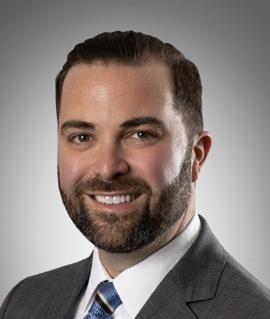
James J. Hunter is a member of Collins Einhorn Farrell PC’s Professional Liability, Commercial Litigation, and Trucking & Transportation Liability practice groups. He has substantial experience defending complex claims in both practice areas.
As a member of the Professional Liability practice group, Jim has successfully defended claims against attorneys, architects, real estate professionals, and others. Before joining Collins Einhorn, Jim worked on complex litigation and Federal white-collar criminal defense. He also served as an Assistant Prosecuting Attorney in Wayne County, Michigan.
19 Volume 40, No. 2 | 2024
David C. Anderson
Legal Malpractice Update, cont.
law exception provides the contrary. The Court examined the prior litigation exception to the American rule, which provides that attorney fees are recoverable when a defendant’s wrongful conduct has forced a party to incur legal expenses in a prior litigation with a third party. It explained that the exception is intended to be applied when a party is guilty of malicious, fraudulent, or other wrongful conduct, not simple negligence.
The Court explained that Michigan follows the American rule with respect to the payment of attorney fees and costs. Under the rule, attorney fees are not ordinarily recoverable unless a statute, court rule, or common-law exception provides the contrary.
The plaintiff argued that the Court should apply the reasoning set forth in two appellate court opinions suggesting that negligence was the appropriate standard under the prior litigation exception. See, e.g., Warren v McLouth Steel Corp, 111 Mich App 496; 314 NW2d 666 (1981); Coats v Bussard, 94 Mich App 558; 288 NW2d 651 (1980). The Court explained that the cases were decided before 1990 and, thus, were not
binding under the Michigan Court Rules. Ultimately, the Court reaffirmed its holdings in Mieras v DeBona, 204 Mich App 703; 516 NW2d 154 (1994), and In re Thomas Estate, 211 Mich App 594; 536 NW2d 579 (1995), and concluded that the plaintiff was required to plead that defendant attorney’s conduct was malicious, fraudulent, or similarly wrongful in order to state a claim for attorney fees under the prior litigation exception to the American rule.
Practice Note
The requirement that a plaintiff must plead wrongful conduct beyond negligence in order to state a claim for attorney fees under the prior litigation exception to the American rule may be subject to scrutiny in the near future. In a concurrence to the majority opinion, one judge explained that although the Court was bound by the holding in Mieras, he questioned the rationale of requiring a showing of conduct beyond negligence to recover what are “plainly consequential damages” of negligence. Such criticisms may invite action on the part of the Supreme Court, if presented with the opportunity to address the issue.
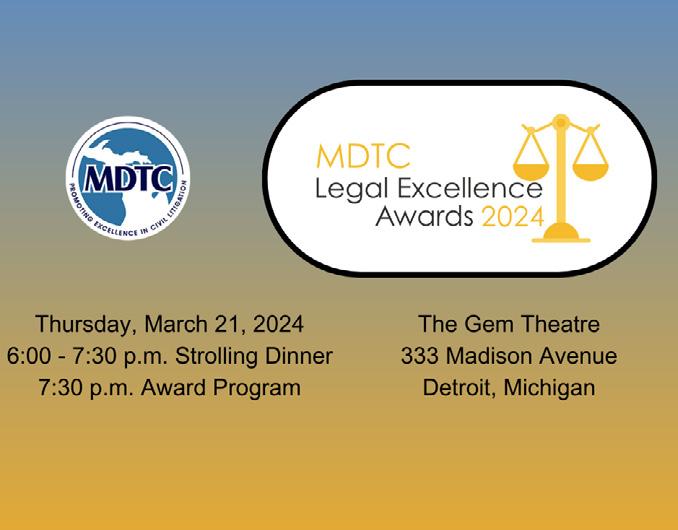
20 Michigan Defense Quarterly
Register here

Legislative Report
By: Zach Larsen, on behalf of the MDTC Public Policy Committee Clark Hill PLC zlarsen@clarkhill.com
The Michigan Legislature has been busy introducing and passing significant bills while the Governor’s party holds the “trifecta” of the executive and both state houses. Though much of the legislation passed to date has addressed issues with only incidental litigation impacts, such as red-flag gun laws, see 2023 P.A 35 & 2023 P.A. 38, or a new Freedom of Information Act exemption for victims of sexual misconduct, 2023 P.A. 64, the following are bills that more directly affect MDTC’s members and their practices:
Proposed Restrictions on Settlements Under the Elliot-Larsen Civil Rights Act
Employment litigators should keep an eye on H.B. 4973, which proposes to ban certain confidential settlement terms for some claims under the Elliott-Larsen Civil Rights Act (“ELCRA”). As drafted, H.B. 4973 provides that “a settlement agreement relating to a claim” for assault, discrimination, harassment, or retaliation “must not contain a provision that prevents or restricts the disclosure of factual information related to the claim.” The proposal also bars courts from entering any order that “restricts the disclosure of information in a manner that conflicts” with that provision.
A New False Claims Act?
H.B. 4398 would enact a new False Claims Act that allows the Attorney General, local units of government, or private persons to file suit for false claims presented to governments or their contractors. Akin to the federal False Claims Act (see 31 U.S.C. § 3729 and 31 U.S.C. § 3730), the bill contains provisions for direct suits by the state or local governments. But it would also enact private qui tam litigation on the state level and provides procedures for the Attorney General’s or a local government’s intervention or participation in such litigation.
However, P.A. 104 repeals these provisions, allowing state agencies more freedom to set stricter regulations than those enacted by the federal government and eliminating the requirement of a “need to exceed” finding.

Zachary Larsen represents companies in regulatory and environmental litigation and counsels industrial and agricultural businesses through compliance and permitting concerns. From defending disaster-related lawsuits like the Flint Water and Edenville Dam class actions to filing industrywide administrative challenges or bringing remediation cost recovery actions, Zach has litigated some of Michigan’s largest environmental disputes. Zach served for eight years as an Assistant Attorney General for the State of Michigan, including in the Environment, Natural Resources, and Agriculture Division, so he knows what businesses can expect from a state enforcement proceeding and who to connect with to achieve a prompt resolution. Having successfully litigated billion-dollar claims and statewide regulatory challenges and negotiated multi-milliondollar consent judgments, Zach’s experience will help him solve a variety of matters.
Zach has litigated cases at all levels— from presenting evidence at trial courts and administrative tribunals to arguing before the Michigan Supreme Court and the U.S. Court of Appeals. Because he served for years advising judges, he understands how judges think and can assemble your case to maximize your likelihood of success.
21 Volume 40, No. 2 | 2024
Zach Larsen
Repeal of “No More Stringent” Standard under the Administrative Procedures Act
The Legislature enacted a sea-change for regulatory litigators with 2023 P.A. 104, which repealed Michigan’s “no more stringent than” federal regulations presumptive ban. Michigan’s Administrative Procedures Act currently provides in MCL 24.232(8)–(10) that state agencies may not “adopt or promulgate a rule more stringent than the applicable federally mandated standard”—if one exists—“unless the director of the agency determines that there is a clear and convincing need to exceed the applicable federal standard.” However, P.A. 104 repeals these provisions, allowing state agencies more freedom to set stricter regulations than those enacted by the federal government and eliminating the requirement of a “need to exceed” finding. The law takes effect on March 31, 2024.
Evidence in Product Liability Cases
P.A. 285 of 2023 deletes drug manufacturer’s immunity from suit, which previously existed under MCL 600.2946(5) when “the drug was approved for safety and efficacy” by the U.S. Food and Drug Administration, thus opening drug mak-

ers up to broader liability. While removing that shield, MCL 600.2946(4) retains the more general, rebuttable presumption that a manufacturer is not liable if a product complies with relevant state or federal regulatory standards.
As drafted, H.B. 4973 provides that “a settlement agreement relating to a claim” for assault, discrimination, harassment, or retaliation “must not contain a provision that prevents or restricts the disclosure of factual information related to the claim.
Judgment Lien and Garnishment Exemptions
H.B. 4900 proposes to expand exemptions from certain collection procedures for money received as payment for meanstested public assistance, unemployment, state tax credits, and certain other types of income. The bill would alter the Revised Judicature Act sections affecting judgment liens, garnishments, and judgment levies.
22 Michigan Defense Quarterly
Report, cont. Save the Date! 2024 Battle of the Bar Thursday, August 22, 2024
Legislative

Medical Malpractice Report
By: Kevin A. McQuillan, Kerr Russell & Weber PLC kmcquillan@kerr-russell.com
Generally, a plaintiff in a medical malpractice action in Michigan must first submit a notice of intent (NOI) to the defendant(s) 182 days before filing the lawsuit (MCL 600.2912b) and must submit with the complaint an affidavit of merit (AOM) signed by an expert describing, among other things, what the defendant did (or failed to do) to violate the alleged standard of care or practice (MCL 600.2912d). If a plaintiff wished to state a claim not included in the NOI, courts could permit amendment of the NOI if certain conditions were met. See Bush v Shabahang, 484 Mich 156; 772 NW2d 272 (2009). Moreover, a complaint submitted without an AOM would not toll the statute of limitations and was subject to dismissal. Scarsella v Pollak, 461 Mich 547, 553, 607 NW2d 711 (2000).
After two Michigan Supreme Court decisions in 2023, the process of commencing a medical malpractice action has changed despite any legislative amendments. First, a plaintiff no longer needs to amend the NOI when amending claims in a complaint (so long as a new defendant is not added). Second, a complaint filed without the requisite AOM will toll the statute of limitations.
Kostadinovski v Harrington, 511 Mich 141; __ NW2d __ (2023).
The NOI is supposed to give medical malpractice defendants information regarding the claim against them including the applicable standard of care and details regarding causation – if the complaint states theories not included in the NOI then dismissal is warranted, see, e.g., Gulley-Reaves v Baciewicz, 260 Mich App 478; 679 NW2d 98 (2004), unless permitting plaintiff to amend the NOI would be in furtherance of justice and would not affect the substantial rights of the parties in accordance with MCL 600.2301. See Bush, 484 Mich at 177. But recently in Kostadinovski v Harrington, 511 Mich 141; __ NW2d __ (2023), the Michigan Supreme Court held “that the NOI requirement of MCL 600.2912b does not apply to an already-existing defendant after a medical malpractice action has commenced.” Id. at *7.
In Kostadinovski, the plaintiffs served a NOI on December 9, 2013 identifying six specific theories of liability regarding medical care rendered on December 14, 2011. Id. at *4. The plaintiffs filed the original complaint on June 5, 2014 and subsequently sought leave to amend just the complaint on March 21, 2016 (after the plaintiffs’ expert witnesses were unable support the six negligence theories set forth in the NOI, AOM, and complaint). Id. at *4-5. The trial court denied leave to amend. Id. at *5. The Court of Appeals held that the trial court failed to consider whether amendment of the NOI would be proper under MCL 600.2301. Id. On remand, the trial court again denied leave to amend. Id. The Court of Appeals affirmed. Id. The Michigan Supreme Court reversed and held “that MCL 600.2912b does not
 Kevin A. McQuillan
Kevin A. McQuillan
Kevin represents individuals, corporations, and governments in all levels of state and federal court. His municipal practice centers on law enforcement use of force, searches and seizures, free speech, due process, equal protection, and deliberate indifference claims. He also represents municipalities in land use and zoning disputes, Freedom of Information Act (FOIA) and Open Meetings Act (OMA) litigation, and employment disputes.
Kevin also defends medical providers and hospitals in medical malpractice and professional licensing matters across Michigan. He represents a wide variety of physicians, mid-level providers, nurses and other professionals in matters including allegations of delayed diagnosis of cancer, interoperative injury, failure to monitor, and wrongful death.
Kevin has been recognized as a “Rising Star” in multiple editions of Super Lawyers and named “One to Watch” by Best Lawyers® for 2024. Kevin received his Juris Doctor degree from Wayne State University Law School. At Wayne Law, Kevin was a member of the Moot Court National Team and was an intern and law clerk for Wayne County Circuit Court Judge Robert J. Colombo Jr. Prior to law school, Kevin received a Bachelor of Arts degree in political science from the University of Michigan. In his spare time, Kevin is a proud supporter of University of Michigan athletics and enjoys being up north with friends and family.
23 Volume 40, No. 2 | 2024
Medical Malpractice Report, cont.
apply where a plaintiff seeks to amend their complaint against an already-named defendant after suit has already been commenced.” Kostadinovski, 2023 WL 4375294.
The Court supported its holding by noting that a plaintiff is not required to submit a new AOM with an amended complaint. Id. at *7, citing King v Reed, 278 Mich App 504, 751 N.W.2d 525 (2008). Additionally, the Court noted the differing NOI wait periods for defendants added mid-suit. “If the Legislature had intended for an NOI requirement to be imposed for both already-existing defendants as well as new defendants, it could have written MCL 600.2912b to state as much.” Id. at *7. The Court found, “It is clear that the purpose of the notice requirement would not be furthered after an action has been commenced with already-existing defendants who have previously benefited from a pre-suit waiting period.” Id. at *6. The Court went so far as to suggest, without elaboration, “the practical realities of the lengthy discovery process” is enough to give defendants notice of the claims against them. Id. at *7, n 5.1
As Justice Zahra’s dissent notes, the majority’s decision opens the door to medical malpractice plaintiffs providing one theory of liability in a pre-suit NOI and then amending the complaint to state an entirely different theory against the same defendant on the eve of trial. While the NOI statute may not be an entirely dead letter at this point, it seems a majority of the Michigan Supreme Court expects medical malpractice defendants to unearth the true claims against them during discovery despite the Michigan Legislature’s enactment requiring plaintiffs to provide a highly specific notice of the nature of the claim before formally raising it in a pleading. The upcoming years will provide some insight as to whether medical malpractice defendants has a noticeable impact on how plaintiffs litigate medical malpractice actions.
Ottgen v Katranji, 511 Mich 223; __ NW2d __ (2023).
An AOM is required to be included with the complaint and signed by an expert to establish that there is merit to the claims alleged in the complaint. MCL 600.2912d(1). Since the distinguishing features of a medical malpractice claim are (1) allegations pertaining to an action that occurred within the course of a professional relationship; which (2) raise questions of medical judgment beyond the realm of common knowledge and experience, Bryant v Oakpoint Villa Nursing Center, 471 Mich 411, 422; 684 NW2d 864 (2004), it makes sense then that the medical malpractice complaint should be accompanied by a sworn statement from an expert identifying the applicable standard of care and describing the alleged breach thereof. Given the importance of the AOM, the Michigan Supreme Court had held that a complaint submitted without an AOM was subject to dismissal and would not toll the statute
of limitations. Scarsella, 461 Mich at 553.2 But it appears the AOM is no longer as important in the eyes of the Court as it once was.
In Ottgen v Katranji, the Michigan Supreme Court recently overruled Scarsella v Pollak and held that, while an AOM still is required to commence a medical malpractice action, the failure to file one with the complaint does not preclude the tolling the statutory limitations period. Ottgen v Katranji, 511 Mich 223; __ NW2d __ (2023). As such, a plaintiff’s cause of action will not be dismissed with prejudice based on statute of limitation grounds for a failure to file an AOM with the complaint.
The majority first drew attention to NOI tolling and noted the Legislature did not create a provision for AOM tolling to reach “the conclusion that the filing of an AOM is not necessary to commence a medical malpractice action and toll the statutory limitations period.” Id. at *6. The majority then noted that the AOM requirement is analogous to the verified complaint requirement for the Court of Claims. But the strongest argument was the majority’s third reason, which the concurrence joined: the Court noted MCL 600.2912d(2) and (3) contemplate the plaintiff filing the AOM 28 or 91 days (respectively) after the complaint is filed. Id. at *7. The Court determined Scarsella was wrongly decided because its holding could not mesh with MCL 600.2912d(2) and (3), “how would the party move for an extension under § 2912d(2) or obtain an extension under § 2912d(3) [if the case did not commence when the complaint was filed]?” Id.
After determining that a complaint is enough to commence a medical malpractice action, and confirming the failure to include an AOM is grounds for dismissal, the majority declined to elaborate on whether the dismissal should be with or without prejudice. Instead, the Court remanded the matter to the trial court to determine the type of dismissal. Id. at *8. Fortunately, the Court acknowledged that dismissal with prejudice can be appropriate when there is gamesmanship by the plaintiff. Id. at *7-8. Justice Zahra’s concurrence also sheds some light on the issue by noting the Court’s prior holding in Kirkaldy v Rim, 478 Mich 581; 734 NW2d 201 (2007), “that ‘the proper remedy’ when a court finds an affidavit of merit to be defective [without evidence of gamesmanship] ‘is dismissal without prejudice,’ leaving the plaintiff with ‘whatever time remains in the period of limitations within which to file a complaint accompanied by a conforming affidavit of merit.’” Ottgen, 2023 WL 4544428, at *11 (Zahra, J. concurring and quoting Kirkaldy, 478 Mich at 586). But when gamesmanship is at issue, “the date on which the AOM is executed is highly telling” and “provides the most significant evidence in deciding whether a plaintiff has intentionally violated MCL 600.2912d to create additional time for filing an AOM or otherwise im-
24 Michigan Defense Quarterly
Medical Malpractice Report, cont.
properly delay the proceedings.” Ottgen, 2023 WL 4544428, at *12 (Zahra, J. concurring).
The combination of Ottgen and Kostadinovski gives medical malpractice plaintiffs the opportunity to skirt many of the Legislature’s requirements for medical malpractice claims. A plaintiff can submit a vague NOI against one defendant, file a complaint against that defendant without an affidavit of merit, and then gain extra time to secure the expert support necessary to state a vague claim. Once the AOM requirement is satisfied, the plaintiff can then amend the pleadings to assert seemingly any theory of malpractice liability against that defendant even if the specific theory is not identified in any NOI or AOM. It will be interesting to see how many medical malpractice actions are now commenced without an affidavit of merit initially filed with the complaint.
Endnotes
1 In his dissenting opinion, Justice Zahra explained, “This case involves an additional NOI that is required because the NOI has not provided any notice to any defending party of the claims that plaintiff intended to pursue when mailing the NOI.” Kostadinovski, 2023 WL 4375294, at *14 (Zahra, J. dissenting). The dissent goes on to explain how the majority opinion essentially abrogates Bush v Shabahang, 484 Mich 156; 772 NW2d 272 (2009).
2 MCL 600.5856(a) provides that “[t]he statutes of limitations or repose are tolled . . . “[a]t the time the complaint is filed, if a copy of the summons and complaint are served on the defendant within the time set forth in the supreme court rules.” The Supreme Court in Scarsella held that, for a medical malpractice complaint to toll the limitations period under § 5856(a), the AOM must be filed with the complaint.
Membership Directory
mdtc.org/services/member-directory/
MDTC Schedule of Events
2024
Thursday, March 21 6:00 – 9:00 pm
LEA – The Gem Theatre
Thursday, April 4 6:00 – 8:00 pm Past Presidents Reception – Detroit Golf Club
Thursday & Friday, June 13-14 8:00 am – 12:00 pm
Annual Meeting & Conference – H Hotel – Midland 1:00 pm – 5:00 pm
Thursday, August 22 TBA MDTC/MAJ Battle of the Bar – Corner Ballpark, Detroit
Thursday, September 12
Tuesday, October 1
Thursday, October 10
Friday, November 1
2025
8:30 am
Golf Outing – Mystic Creek Golf Club
TBA Award Nomination Deadline
6:00 – 8:00 pm
8:00 am – 5:00 pm
Thursday & Friday, June 19-20 1:00 pm – 5:00 pm
8:00 am – 12:00 pm
MTJ – Detroit Golf Club
Winter Meeting – Sheraton Detroit Novi Hotel
Annual Meeting & Conference – Soaring Eagle Casino
25 Volume 40, No. 2 | 2024
more information
Click for

Michigan Court Rules Update
By: Sandra Lake, Hall Matson, PLC slake@hallmatson.law
Proposed Amendments
2022-14-Proposal to allow recording of mental examinations and presence of counsel during examinations
Rule affected: MCR 2.311
Issued: April 20, 2023
Public hearing: November 15, 2023
This proposed amendment would allow a mental examination to be recorded by video or audio under certain circumstances and further allows counsel for the party being examined to request to be present during the examination.
Adopted Amendments
2022-03-Amendment to MCR 1.109
Rule affected: MCR 1.109
Issued: September 24, 2023
Effective: January 1, 2024
This amendment allows the parties and attorneys to identify their personal pronouns and would require courts to use those pronouns both verbally and in writing, unless doing so would result in an unclear record.
2022-11-Amendment to rule regarding voir dire
Rules affected: MCR 2.511 and MCR 6.412
Issued: September 20, 2023
Effective: January 1, 2024
This amendment gives the court discretion to allow the parties or the court to conduct voir dire, but if conducted by the court, the court must also allow the attorneys to ask further questions or submit further questions to the court to be asked.
Vendor Resource Bank
Members only service (Must be logged in to the website)
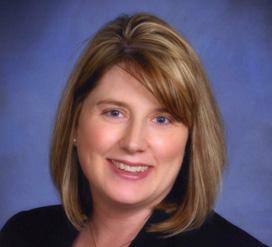
Sandra Lake is a 1998 graduate of Thomas M. Cooley Law School. She is Of Counsel at Hall Matson, PLC in East Lansing, specializing in appellate practice, medical malpractice defense, insurance coverage, and general liability defense. She is also the Vice President of the Ingham County Bar Association and previously served as Chair of its Litigation Section.
26 Michigan Defense Quarterly
Sandra Lake













27 Volume 40, No. 2 | 2024 Your Integrated, Accomplished, and Experienced Nationwide One-Stop Damage Expert Life Care Planning Forensic Economics Functional Capacity Evaluations Vocational Testing & Rehabilitation Evaluations Your Legal Resource Warner provides in-depth knowledge and experience in state and federal courts, across multiple industries, covering the full spectrum of matters that may arise throughout every stage of litigation. wnj.com
| Detroit Grand Rapids | Holland Kalamazoo | Lansing Macomb County Midland | Muskegon
Bloomfield
Hills

MILLER ENGINEERING

•
•
•
•
•
•
•
•








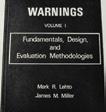











28 Michigan Defense Quarterly
James M. Miller, PE, PhD | Mark R. Lehto, PhD David R. Clark, PE, PhD | Adam M. Olshove, PE, MSE Professional engineers in Ann Arbor, Michigan providing product, process, and vehicle accident safety evaluations www.millerengineering.com • 734.662.6822 • 888.206.4394 Consulting,
expert witness services, including:
engineering, &
Lithium battery explosions/failures
safety
Cannabis processing
magnet warnings
E-cigarettes, vaping, &
equipment
Boats, ATVs, & sports/training
accidents
Plant electrical, explosion, & process
• OSHA compliance & litigation
solar
• Renewable energy usage: hydroelectric &
• Warning label creation & evaluation
Construction/excavation accidents
Hazard analysis & CPSC recall management
Toxic chemical exposure & warnings
• Truck & auto accidents
liability
pools, commerical steps, parking)
• Premises
(home
equipment
harvesting, pesticide applications) Ann Arbor-based professional engineers with over 40 years of service to institutions of higher education, government, insurance, and industry through research, publications, presentations, and expert witness testiomy.
• Farm
(tilling,

American Board of Trial Advocates® Michigan Chapter
The Michigan Chapter of the American Board of Trial Advocates (“ABOTA”) is happy to be celebrating 38 years of excellence. ABOTA is dedicated to promoting trial advocacy at its highest levels, including elevating the standards of integrity, honor, and courtesy in the legal profession, as well as advancing the education and training of trial lawyers and working to preserve our jury system.
2023 Awards of Excellence
Lifetime Judicial Achievement Award
Hon. Victoria A. Roberts Civility Award
Randall A. Juip Presidential Recognition Award
Debra A. Freid
Scully Award for Outstanding Service
James N. Martin
David R. Getto
Richard B. Baxter Exemplary Advocate Award
Stephen B. Goethel
Officers
President Judith Susskind Sommers Schwartz PC
President-Elect
Michael Janes Miller Canfield
Treasurer
Debra Freid
Freid Gallagher Taylor & Associates
Jody L. Aaron
John W. Allen
John E. Anding
Michael P. Ashcraft, Jr.
Edmund O. Battersby
Michael L. Battersby
Daniel P. Beck
Thomas R. Behm
Michael J. Behm
Mark R. Bendure
Kathleen L. Bogas
Barry D. Boughton
Robert J. Buchanan
John C. Buchanan
Cheryl A. Bush
Melanie T. Camara
J. Kelly Carley
David E. Christensen
David W. Christensen
Barry Conybeare
Bruce C. Conybeare
Michael P. Cooney
Wilson A. Copeland II
Louis G. Corey
Thomas W. Cranmer
Robert H. Darling
Thomas M. Deagostino
Ronald G. DeWaard
Frederick D. Dilley
Paul J. Dwaihy
John T. Eads, III
Thomas N. Economy
Mark E. Fatum
James P. Feeney
Jon Feikens
Stanley J. Feldman
Keith P. Felty
Samuel T. Field
Anita B. Folino
Audrey J. Forbush
J. Michael Fordney
Debra Ann Freid
Stuart A. Fraser, IV
Hon. Julie A. Gafkay
Membership Chairperson Cameron Getto Zausmer, P.C.
Secretary Robert Buchanan Buchanan Firm
Immediate Past President
Daniel J. Scully, Jr. Clark Hill PLC
MEMBERS
Lawrence T. Garcia
Robert F. Garvey
Cameron Getto
William D. Gilbride, Jr.
Bradley K. Glazier
Stephen Goethel
Henry L. Gordon
James F. Graves
Milton H. Greenman
Justin Hakala
Elizabeth Phelps Hardy
Dustin C. Hoff
William C. Hurley
Michael R. Janes
J. Paul Janes
Vernon R. Johnson
Randall A. Juip
Michael V. Kell
James R. Kohl
David A. Kotzian
Edward G. Lennon
Kevin Lesperance
Timothy M. Lessing
Scott M. Mandel
Paul J. Manion
James N. Martin
Marcy R. Matson
E. Thomas McCarthy, Jr.
Laurel F. McGiffert
Thomas G. McHugh
James McKenna
Thomas R. Meagher
Scott R. Melton
Cynthia E. Merry
Jeffrey Meyers
William F. Mills, Jr.
John R. Monnich, Sr.
Thomas P. Murray, Jr.
David R. Nauts
Lawrence P. Nolan
John P. O’Leary
Jules B. Olsman
David M. Ottenwess
Daniel V. Padilla
National Board Representatives
Thomas R. Behm
Robert F. Riley
Daniel J. Scully, Jr.
James E. Tamm
Chapter Headquarters
Madelyne C. Lawry Executive Director
Peter W. Peacock
C. Kenneth Perry, Jr.
Frederick B. Plumb
Robert Raitt
Jennifer Reizen
Robert F. Riley
Thomas M. Rizzo
Michael T. Ryan
Perrin Rynders
Glenn A. Saltsman
Amy E. Schlotterer
Daniel J. Scully, Jr.
David P. Shafer
Gary D. Sharp
Joel B. Sklar
Stuart A. Sklar
Peter A. Smit
Douglas C. Smith
Joseph C. Smith
Todd J. Stearn
Michael W. Stephenson
Richard J. Suhrheinrich
Membership to ABOTA is by invitation only. If you are interested, please visit the following websites: Michigan Chapter (abotami.org) or the National organization (abota.org)
Judith A. Susskind
James E. Tamm
Atallah T. Taweel
John M. Toth
Matthew L. Turner
B. A. Tyler
Bryan J. Waldman
Thomas W. Waun
Michael D. Weaver
Cyril Weiner
Ronald K. Weiner
Brian W. Whitelaw
John Whitman
Rhonda Y. Williams
Charles H. Worsfold
Jenna Wright Greenman
LeRoy H. Wulfmeier, III
29 Volume 40, No. 2 | 2024
BEST ARTICLE Award 2023
Recipients received their Awards at the MDTC Winter Conference.
Volume 39 Issue 2
By: Deborah L. Brouwer and Anna S. Kozak
Article: E-Sigs: As Bad as E-Cigs?
Best Article Award Recipients
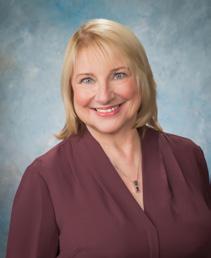

MDTC Listserv Benefits
This free member service provides a convenient and easy way to network with your peers. By using these email forums, you can share your ideas and suggestions on legal issues relevant to your practice.
Post a problem - Get a solution - Ask a question - Get an answer | Share information - Learn what's worked and what hasn't *All members are automatically added to the general liability listserv. To reach all members, simply send an email to genliab@mdtc.org
All Available Listservs
To raise an issue for discussion or join the discussion list, send an email to one of the following groups:
Appellate Practice
Commercial Litigation
General Liability
In-House Council
Labor & Employment
Law Practice Management
Municipal & Governmental Liability
Professional Liability & Healthcare
Trial Practice
Workers Compensation
Young Lawyers (based on length of practice)
Disclaimer and Use of Listservs
appellatepractice@mdtc.org* commlitigation@mdtc.org* genliab@mdtc.org housecounsel@mdtc.org* laborandemployment@mdtc.org* lawpracticemanagement@mdtc.org* municipalandgovtliability@mdtc.org* professionalliabilityandhealthcare@mdtc.org* trialpractice@mdtc.org* workerscomp@mdtc.org* younglaw@mdtc.org*
* Law Practice Specific
MDTC listservs are offered to MDTC members in connection with the practice of law only. They may not be used for any other purpose or by any person who is not a member of MDTC. These listservs are designed to be used as a conduit for informational purposes only. A member seeking information about an expert may send an email to the various active discussion lists. MDTC takes no position with regard to the licensure, qualifications, or suitability of any expert on any discussion list. MDTC does not guarantee the confidentiality of your listserv postings. Please exercise tact and professionalism. MDTC does not archive requests for information or responses.
30 Michigan Defense Quarterly
Deborah L. Brouwer
Anna S. Kozak
More
Best Article Award
information about
2024 Legal Excellence Awards Recipients
Young Lawyer Golden Gavel Award
Genavieve K. Lee (Hilgenbrink) is a Senior Attorney at Novara Tesija Catenacci McDonald & Baas, PLLC. She is experienced in handling high exposure cases and complicated legal issues, primarily focusing on first- and third-party No- Fault actions. She specializes in Michigan Assigned Claims Plan work, SIU claims, and represents insurers of all sizes across the state of Michigan.
Genna has obtained countless dismissals of PIP and thirdparty actions with her attention to detail and keen research skills. As a former journalist, she utilizes her investigation skills to uncover important background information on claimants and providers alike that has been used to obtain dismissals in No-Fault actions across the state.
She believes professional and collegial relationships are the key to providing personalized service to her clients. As such, she is an active member of the legal community and participates in several organizations for attorneys in Southeastern Michigan. Additionally, Genna devotes much time and effort to training and mentoring new attorneys as they “find their place” in the legal profession. She also hosts and produces the Novara Law Podcast, which provides insight to civil defense counsel regarding changes in the law and critical judicial rulings.

Judicial Award
Judge Julie Gatti graduated from Michigan State University with a Bachelor of Arts degree in 1989. She received her Juris Doctorate from Wayne State University in 1995. Judge Gatti was elected to the Macomb County Circuit Court bench in November 2018. Prior to her election, Judge Gatti spent over 22 years in private practice. She served on the Board of the Macomb County Bar Association (MCBA) and was elected its 85th President. She was the proud recipient of the MCBA’s Civility Award in 2018 and was recognized by DBusiness as a Top Circuit Court Judge in 2023. Judge Gatti is a member of the Women Lawyers Association of Michigan, the Italian American Bar Association of Michigan, and the Italian American Chamber of Commerce of Michigan. She presides over the 16th Judicial Circuit Court Sobriety Treatment

Hon. Julie Gatti
Macomb County 16th Circuit Court
Court, which is dedicated to reducing recidivism by addressing alcohol dependence by recurring drinking and driving offenders. Now over five years into her tenure in the Court’s Civil/Criminal Division, Judge Gatti wishes to express her sincerest gratitude to all those, present here and otherwise, who shared time and wisdom to help her understand the nuances and issues unique to presiding over a Civil docket. Judge Gatti is humbled, honored, and grateful to receive this prestigious award.
31 Volume 40, No. 2 | 2024
Genavieve Lee
Novara Tesija McDonald & Baas PLLC
John P. Jacobs Appellate Advocacy Award
Ever since joining the firm in 2005, clients have called upon Timothy A. Diemer to advocate on their behalf across a wide range of jurisdictions. Corporations, insurance carriers, small businesses, hospitals and doctors, municipalities and other civil litigants have benefitted from Mr. Diemer's vigorous advocacy in state and federal courts of appeal, including the Supreme Court of the United States.
While the firm's unique specialty is reversing devastating money judgments, Mr. Diemer's appellate practice is wideranging and includes defending hard fought trial court victories against challenges on appeal, compelling interlocutory reversals of adverse evidentiary rulings or wresting the case away from the trial court when controlling questions of law present an opportunity for early appellate review before valuable resources are poured into a trial that may not be necessary.
At the trial court level, Mr. Diemer provides support for the defense team, working to exclude damaging evidence, drafting dispositive motions and jury instructions to preserve critical legal issues in cases where the stakes are so high that the client knows the case will have to be appealed. To learn more about some of Mr. Diemer's successes, click on the Representative Cases Tab above.

In his time with the firm, Mr. Diemer has garnered numerous awards and accolades that recognize him for his talent as an appellate specialist. At the age of 32, Mr. Diemer was honored as a biographee in Best Lawyers of America, making him one of the youngest Appellate Lawyers in America to be so recognized. At the age of 35, Mr. Diemer became the youngest to ever serve as President of Michigan Defense Trial Counsel, a statewide association of trial lawyers who nominated an appellate lawyer to advocate on their behalf and serve as their leader.
Michigan Lawyer's Weekly named Mr. Diemer one of Michigan's Up & Coming Lawyers for 2012. These recent accolades follow additional recognition as a Top Lawyer by dBusiness Magazine and as a Michigan SuperLawyer for his work with the appellate team at Jacobs and Diemer.
Mr. Diemer is a frequent author and speaker on appellate practice. Click on the Media tab above to read his articles and opinion columns and learn about the awards he has received.
Excellence in Defense Award
Dora A. Brantley is an experienced litigation and trial attorney. Among other matters, Ms. Brantley has successfully defended, as lead counsel, professional liability claims, and claims brought against restaurants, hospitality companies, manufacturers, transportation carriers, automobile drivers, employers, landlords, homeowners, small business owners, and governmental entities and their employees. She has been engaged by employers to investigate and provide direction regarding claims of discrimination and harassment, and by insurance carriers to resolve insurance coverage disputes. She has tried, to verdict, cases involving catastrophic injuries, including death. Ms. Brantley enjoys the privilege of being the only attorney who has been selected by two Fortune 500 fast food corporations to defend claims and litigation involving a variety of issues, including tort liability
and alleged civil rights violations, that have been brought against the corporations in Michigan. She is also one of only two attorneys who have been selected by a Fortune 500 hospitality corporation to defend tort and civil rights claims and litigation that have been brought against the corporation in Michigan. She serves as one of only a few Michigan panel counsel for a leading conglomerate of insurance companies. Those claims and litigation encompass, but are not limited to, automobile negligence (first and third party), single and multi-family residential fire losses, construction and toxic torts.

32 Michigan Defense Quarterly
Timothy Diemer Jacobs and Diemer PC
continued on page 33
Dora A. Brantley Foster Swift Collins & Smith PC
Excellence in Defense Award continued...
Ms. Brantley is a member of the prestigious Federation of Defense & Corporate Counsel (FDCC), an international organization with less than 1200 attorney members, all who have demonstrated their leadership in the legal community. Election to the FDCC is by the Board of Directors upon recommendation of an Admissions Committee charged
with making an exhaustive investigation into the qualifications of nominees to ensure that they have distinguished themselves professionally. Ms. Brantley formerly held the position of Representative for the State of Michigan with the FDCC.
Excellence in Defense Award
José Brown is a 1978 graduate of Michigan State University and a 1981 graduate from the Thomas M. Cooley Law School. José maintains memberships in the Genesee County Bar Association (past Board of Directors), Negligence Law Section of the State Bar of Michigan (Past Chairperson), Michigan Defense Trial Counsel (Past President), Medico-Legal Problems Committee of the State Bar of Michigan (Past Chairperson), Governmental Issues Committee of Michigan Society of Hospital Risk Managers (Past Chairperson), Michigan Society of Hospital Risk Managers (Board of Directors), and has served as State Representative for the Defense Research Institute for multiple terms. José is a Lifetime Fellow of the Michigan State Bar Foundation and certified to practice in all Federal courts including the U.S. Supreme Court. José will be employed with Cline, Cline & Griffin for forty years on July 6, 2024.
José provides pro bono services for multiple free medical clinics, non-profits, and foundations. José also provides legal assistance for the start-up of the CMU Medical School and represents Synergy Medical Education Alliance n/k/a CMU Partners, providing legal representation for the internship

and residency program. He frequently lectures the residents and medical students on litigation and healthcare. Due to this relationship, he is well acquainted with federal and state statutes and regulations concerning HIPAA, HITECH, STARK, AKS, billing and fraud abuse. José is employed as a Professor at Michigan State University in Healthcare Compliance. José also maintains expertise in the area of licensing and regulatory affairs investigations. José frequently advises physicians on credentialing, privileging, NPDB and other healthcare related issues.
José has been married to Nancy Buchel Brown for forty-two years (August 21, 1981). José and Nancy have two great children and citizens, Katie René (middle school Spanish teacher in Boulder, Colorado) and John Thomas (lawyer with Miller Johnson in the Grand Rapids offices). José has also run the Boston Marathon five times, when Abe Lincoln was President of MDTC.
Thursday, March 21, 2024 at 4pm
33 Volume 40, No. 2 | 2024
MDTC Legal Excellence Awards
José Brown Cline Cline & Griffin PC
Click here to register online


Click here to register
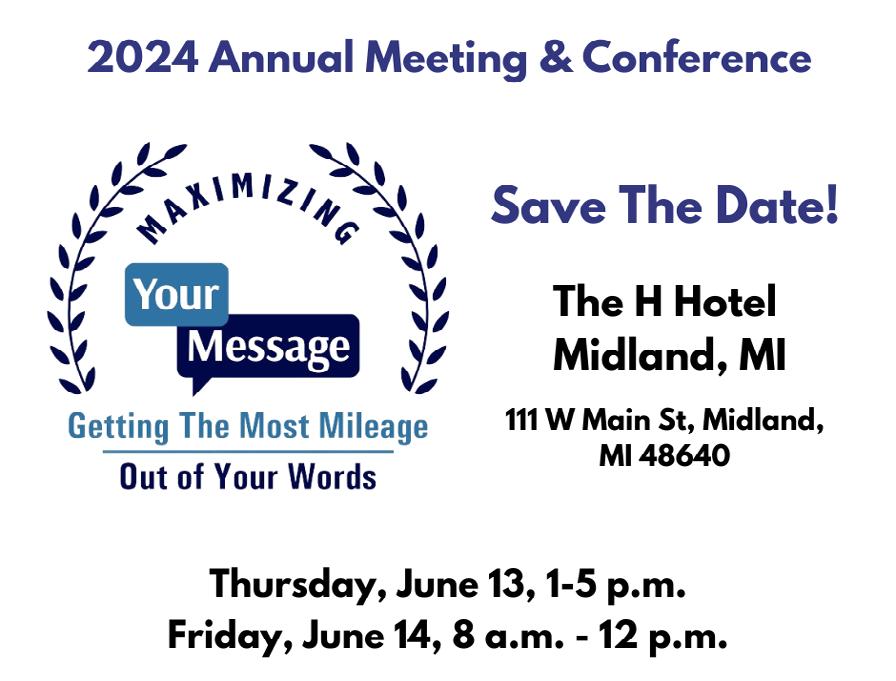
mdtc.org/services/job-bank/
Veteran Resources
mdtc.org/services/veterans-resources/
MDTC Quarterly Archives
mdtc.org/press-center/michigandefense-quarterly/ Job Bank
View all photos at https://www.mdtc.org/services/photo-gallery/
34 Michigan Defense Quarterly
MDTC Photo Gallery
Michigan Defense Trial Counsel, Inc.
The Statewide Association of Attorneys Representing the Defense in Civil Litigation
MEMBER-TO-MEMBER SERVICES
Be a part of a forum, exclusively for members, in which you can make your expertise available to other MDTC members!
1. Who can place a notice?
Because this is a members-only benefit, only MDTC members can place a notice. Notices must identify an individual who is a member of MDTC and cannot solely identify a law firm.
2. What does it cost?
INDEMNITY AND INSURANCE ISSUES
Michigan Defense Quarterly Advertising
Only $75 for a single entry and $200 for four consecutive entries.
3. Format:
Mechanical Requirements & Rates
Author of numerous articles on indemnity and coverage issues and chapter in ICLE book Insurance Law in Michigan, veteran of many declaratory judgement actions, is available to consult on cases involving complex issues of insurance and indemnity or to serve as mediator or facilitator.
Advertising Order Form - Click
The format is reflected in the sample to the right. You will have to use 11 point Times New Roman font and set your margins to equal the size of the box.
4. Artwork
Photos are allowed in digital format.
2023 - 2024 Firm & Vendor Sponsorship Opportunities
Info@mdtc.org PO Box 66 Grand Ledge MI 4887 517-627-3745
SAMPLE
Please send notices and any suggestions to Michael Cook, Editor, at info@mdtc.org. Checks should be made payable to “Michigan Defense Trial Counsel.”
MEMBER-TO-MEMBER SERVICES
We offer many packages to fit your needs. personal connections with potential clients is hard in today’s fast-paced and busy work environments.
___Yes, we would like to reserve space. ___Single Entry $75 ___Four Consecutive Entries $200
Name:________________________________________________________________________________
Partnering with the MDTC provides your company access and valuable networking with top litigators across Michigan in a less formal yet professional environment.
Company Name:_ Address:_______________________________________________________________________________
Follow the links to learn more and submit your sponsorship today.
Firm: Click here
Vendor: Click here

City/ State /Zip:_________________________________________________________________________ Phone:________________ Fax: _________________ E-Mail: _________________ ___I am enclosing a check. ___A check will be mailed. ¢ Visa ¢ Mastercard #____________________________________________ Authorized Signature:________________________________________ Exp. Date:_________________ Please complete form and mail to: MDTC / PO Box 66 / Grand Ledge, MI 48837 / (517) 627-3745 Fax 517-627-3950
MDTC
here
MDTC Leader Contact Information
Officers
Michael J. Jolet, President Hewson & Van Hellemont PC 25900 Greenfield Road Suite 650 Oak Park, MI 48237
248-968-5200 • 248-968-5270 mjolet@vanhewpc.com
John C.W. Hohmeier, Vice President Scarfone & Geen P.C. 30680 Montpelier Drive Madison Heights, MI 48071 248-291-6184 • 248-291-6487 jhohmeier@scarfone-geen.com
Frederick V. Livingston, Treasurer
Novara Tesija & Catenacci PLLC 888 W Big Beaver Road Suite 150 Troy, MI 48084-4736 248-354-0380 • 248-354-0393 fvl@ntclaw.com
Richard J. Joppich, Secretary Kitch Attorneys & Counselors PC 2379 Woodlake Drive Suite 400 Okemos, MI 48864 517-381-7182 • 517-381-4427 richard.joppich@kitch.com
John Mucha, III, Immediate Past President Dawda, Mann, Mulcahy & Sadler PLC 39533 Woodward Avenue Suite 200 Bloomfield Hills, MI 48304 248-642-3700 • 248-642-7791 jmucha@dmms.com
Madelyne C. Lawry, Executive Director MDTC P.O. Box 66 Grand Ledge, MI 48837 517-627-3745 • 517-627-3950 info@mdtc.org
Regina A. Berlin
Garan Lucow Miller P.C. 665 Seward Avenue NW Suite 302 Grand Rapids, MI 49504 616-742-5500 • 616-742-5566 rberlin@garanlucow.com
Sarah E. Cherry Foley, Baron, Metzger & Juip, PLLC Cambridge Center 38777 Six Mile Rd., Suite 300 Livonia, MI 48152 734-742-1848 • 734-521-2379 scherry@fbmjlaw.co
Michael J. Cook
Collins Einhorn Farrell PC 4000 Town Center Suite 909 Southfield, MI 48075 248-351-5437 • 248-351-5469 michael.cook@ceflawyers.com
Daniel O. Cortez Cortez & Associates, PLLC 30700 Telegraph Road Suite 2650 Bingham Farms, MI 48025 313-213-4605 dcortez@cortezattorneys.com
Javon R. David
Butzel Long 41000 Woodward Avenue, Stoneridge West Bldg. Bloomfield Hills, MI 48304 248-258-1415 • 248-258-1439 davidj@butzel.com
David F. Hansma
Clark Hill PLC
151 S Old Woodward Suite 200 Birmingham, MI 488009 248-988-5877 • 248-642-2174 dhansma@clarkhill.com
Regional Chairs
Board
Veronica R. Ibrahim
Kent E. Gorsuch & Associates 20750 Civic Center Drive Suite 400 Southfield, MI 48076 248-945-3838 • 855-847-1378 veronica.ibrahim@gmail.com
Thomas D. Isaacs
Bowman and Brooke LLP 41000 Woodward Avenue Suite 200-E Bloomfield Hills, MI 48304 248-205-3353 • 248-205-3399 thomas.isaacs@bowmanandbrooke. com
Megan R. Mulder
Cline, Cline & Griffin, P.C. Mott Foundation Building 503 S. Saginaw Street Suite 1000 Flint, MI 48502 810-232-3141 • 810-232-1079 mmulder@ccglawyers.com
Edward P. Perdue
Perdue Law Group 447 Madison Avenue SE Grand Rapids, MI 49503 616-888-2960 • 616-516-6284 eperdue@perduelawgroup.com
Nathan Scherbarth Zausmer PC 32255 Northwestern Hwy Suite 225 Farmington Hills, MI 48334 248-851-4111 • 248-851-0100 nscherbarth@zacfirm.com
A. Tony Taweel
Smith Haughey Rie & Roegge 900 Victors Way Suite 300 Ann Arbor, MI 48108 734-913-5387 • 734-439-0030 ataweel@shrr.com
Grand Rapids: Richard Szymanski
McDonald Pierangeli Macfarlane, PLLC 3300 Eagle Run Drive, NE, Suite 201 Grand Rapids, MI 49525 616-977-9200, Ext. 3772 rszymanski@mpmtrialattorneys.com
Grand Rapids: Jarrod H. Trombley Warner Norcross & Judd LLP 150 Ottawa Ave NW Suite 1500, 1500 Warner Building Grand Rapids, MI 49503 616-752-2573 jtrombley@wnj.com
Lansing: Michael J. Pattwell Clark Hill PLC 212 E. Cesar Chavez Avenue Lansing, MI 48906 517-318-3043 • 517-318-3082 mpattwell@clarkhill.com
Marquette: Jeremy S. Pickens O’Dea Nordeen and Burink PC 122 W. Spring Street Marquette, MI 48955 906-225-1770 • 906-225-1764 jpickens@marquettelawpc.com
Southeast Michigan: Quendale G. Simmons Butzel Long PC 150 West Jefferson Avenue, Suite 100 Detroit, MI 48226 313-983-6921 • 313-225-7080 simmonsq@butzel.com
Traverse City: Gregory R. Grant Cummings McClorey Davis & Acho PLC 310 W. Front Street Suite 221 Traverse City, MI 49684 231-922-1888 • 231-922-9888 ggrant@cmda-law.com
Kalamazoo: Jordan Held Kreis, Enderle, Hudgins & Borsos, PC 8225 Moorsbridge Road Portage, MI 49024 269-324-3000 • 734-735-1604 jordan.r.held@gmail.com
Saginaw/Flint: Jacob G. Lyday O'Neill, Wallace, and Doyle, P.C. 300 St. Andrews Road Suite 302 Saginaw, MI 48638 989-790-0960 • 989-790-6902 jlyday@owdpc.com
36 Michigan Defense Quarterly
MDTC Leader Contact Information
MDTC 2023-2024 Committees
Golf Committee
John C.W. Hohmeier, Co-Chair
Terence Durkin, Co-Chair
Amber Girbach
Randy Juip
Michael Pattwell
Dale Robinson
Past Presidents Society
Hilary Ballentine
D. Lee Khachaturian
Legal Excellence Awards
Daniel Cortez, Chair
Stephen Madej
Brandon Schumacher
Amicus
Lindsey A. Peck, Chair
Drew Broaddus
Jesse DePauw
Phil DeRosier
Scott Garrison
Michael Geraghty
John C.W. Hohmeier
Grant Jaskulski
James Poll
David Porter
Adam Ratliff
Nathan Scherbarth
Carson J. Tucker
Winter Meeting 2023
Shawn Lewis, Co-Chair
Sarah Cherry
Diversity, Equity & Inclusion
Zabbia Alholou, Chair
Regina Berlin
Fred Livingston
Regional Chair Liaison
Dale Robinson, Co-chairs
Jeremy Pickins, Co-chairs
Section Chair Liaison
Javon David, Co-chairs
Stephen Madej, Co-chairs
Sponsors (vendors/firm)
John C.W. Hohmeier
Fred Livingston
Richard Joppich
Nominating Committee
John Mucha
Public Policy Committee
Zachary Larsen, Chair
Membership
Frederick Livingston, Co-Chair
Dan Campbell
Veronica Ibrahim
Awards
Paul Vance, Chair
Robyn Brooks
Kevin Lesperance
David Ottenwess
E-Newsletter Committee
Nathan Scherbarth
Future Planning 2023
John Hohmeier
Social Media
Zabbia Alholou
Lou Stefanic
Quarterly Editor:
Katherine Gostek
Associate Editors:
Jesse DePauw
Thomas Lurie
Jeremy Orenstein
Committee Members:
Phil DeRosier – Appellate
Sandra Lake – Court Rule
Jay Yelton – E-Discovery
Drew Broaddus – Insurance Coverage
Jim Hunter & David Anderson – Legal Malpractice
Kevin McQuillan - Medical Malpractice
Ron Sangster – No-Fault Report
Stephanie Romeo – Supreme Court
Veterans Committee:
Larry Donaldson
Ed Perdue
Annual Meeting & Summer Conference 2024
Dan Ferris, Co-Chair
Matt Zalewski, Co-Chair
Mike Patwell
Regina Berlin
Rick Szymanski
Anthony Pignotti
Young Lawyers Section Education
Brandon Schumacher
Amanda Waske
Softball
Mike Jolet, Chair
Zabbia Alholou
Regina Berlin
Sarah Cherry
Tim Diemer
John Hohmeier
Richard Joppich
Frederick Livingston
37 Volume 40, No. 2 | 2024
MDTC Leader Contact Information
Section Chairs
Appellate Practice
Grant Jaskulski
Hewson & Van Hellemont PC 25900 Greenfield Road Suite 650
Oak Park, MI 48237
248-968-5200 • 248-968-5270 gjaskulski@vanhewpc.com
Appellate Practice
Jesse DePauw
Tanoury Nauts McKinney & Dwaihy 38777 6 Mile Road, Suite 101 Livonia, MI 48152-2660 313-965-7446 • 313-965-7403 jesse.depauw@tnmglaw.com
Commercial Litigation
David Hansma
Clark Hill PLC 151 S Old Woodward Suite 200 Birmingham, MI 488009
248-988-5877 • 248-642-2174 dhansma@clarkhill.com
Commercial Litigation
Myles J. Baker
Dickinson Wright PLLC
500 Woodward Avenue, Suite 4000 Detroit, MI 48226 313-223-3132 • 844-670-6009 mbaker@dickinsonwright.com
Commercial Litigation
Salina Hamilton
Dickinson Wright PLLC 500 Woodward Avenue, Suite 4000 Detroit, MI, 48226 313-223-3110 • 844-670-6009 shamilton@dickinsonwright.com
General Liability
Anthony Pignotti
Foley Baron Metzger & Juip PLLC 38777 6 Mile Road, Suite 300 Livonia, MI 48152 734-742-1800 • 734-521-2379 apignotti@fbmjlaw.com
General Liability
Regina A. Berlin
Garan Lucow Miller P.C. 300 Ottawa Avenue NW, Suite 800 Grand Rapids, MI 49503 616-742-5500 • 616-742-5566 rberlin@garanlucow.com
Immigration Law
Ahndia Mansoori Kitch Law Firm 1 Woodward Avenue, Suite 2400 Detroit, MI 48226-5485 313-965-6730 • 313-965-7403 ahndia.mansoori@kitch.com
In House Counsel
Lee Khachaturian
The Hartford Financial Services Group, Inc
5445 Corporate Drive, Suite 360 Troy, MI 48098
248-822-6461 • 248-822-6470 diana.khachaturian@thehartford.com
Insurance Law
Stephen C. Madej Scarfone & Geen PC 30680 Montpelier Drive Madison Heights, MI, 48071-1802 248-291-6184 • 248-291-6487 smadej@scarfone-geen.com
Insurance Law
Samantha Boyd
Vandeveer Garzia 840 W Long Lake Rd. Suite 600 Troy, MI 48098
248-312-2800 sboyd@vgpclaw.com
Labor and Employment
Nicholas Huguelet Nemeth Law PC
200 Talon Centre Drive Suite, 200 Detroit, Michigan 48207 313-567-5921 • 313-567-5928 nhuguelet@nemethlawpc.com
Labor and Employment
Adrienne L. Hayes
Bowen Radabaugh & Milton PC 100 E Big Beaver Road, Suite 350 Troy, MI 48083-1204
248-641-0103 • 248-641-8219 alhayes@brmattorneys.com
Law Practice Management
Fred Fresard
Klein Thomas & Lee LLC
101 W Big Beaver Road, Suite 1400 Troy, MI 48084
248-509-9271
fred.fresard@kleinthomaslaw.com
Municipal & Government Liability
Robyn Brooks City of Detroit Law Dept 2 Woodward Avenue, Suite 500 Detroit, MI 48226
313-237-3049 • 313-224-5505 broor@detroitmi.gov
Municipal & Government Liability
Matthew J. Zalewski
Rosati Schultz Joppich & Amtsbuechler PC 27555 Executive Drive, Suite 250 Farmington Hills, MI 48331-3550 248-489-4100 • 248-489-1726 mzalewski@rsjalaw.com
Professional Liability & Health Care
Kevin Lesperance
Henn Lesperance PLC 40 Pearl Street NW, Suite 1040 Grand Rapids, MI 49503 616-551-1611 • 616-323-3658 kml@hennlesperance.com
Professional Liability & Health Care
Daniel John Ferris
Kerr, Russell and Weber, PLC 500 Woodward Avenue, Suite 2500 Detroit, MI 48226 313-961-0200 • 313-961-0388 dferris@kerr-russell.com
Trial Practice
Randall Juip
Foley Baron Metzger & Juip PLLC 38777 Six Mile Road, Suite 300 Livonia, Michigan 48152 734-742-1800 • 734-521-2379 rajuip@fbmjlaw.com
Trial Practice
Renee T. Townsend Secrest Wardle 2600 Troy Center Drive, P.O. Box 5025 Troy, MI 48007 248-851-9500 • 248-251-1782 rtownsend@secrestwardle.com
Young Lawyers
Brandon M.H. Schumacher
Foster Swift Collins & Smith P.C. 313 S. Washington Square Lansing, MI 48933 517-371-8255 bschumacher@fosterswift.com
Young Lawyers
Amanda P. Waske
Zausmer, P.C. 32255 Northwestern Highway Suite 225 Farmington Hills, MI 48334-1530 248-851-4111 awaske@zausmer.com
38 Michigan Defense Quarterly
MDTC Welcomes New Members!
Nikita Artaev, Henn Lesperance PLC
Brian Blackmer, Auto-Owners Insurance
Lauren Bolt, Schlotterer Law PLLC
Patrick Cassidy, III, The Hanover Law Group
Kristin Cate, The Law Offices of Valentine Temrowski
Savannah Coomer, Allstate Insurance Company - Client Legal Services
Nancy Dembinski, Landry Mazzeo & Dembinski PC
Zachary Diederichs, Secrest Wardle
Cody Ellwanger, Hewson & Van Hellemont, P.C.
Carole Empey, Foley, Baron, Metzger & Juip, PLLC
Carlos Escurel, Foley, Baron, Metzger & Juip, PLLC
Christine Fischer, Kramer, Corbett, Harding & Dombrowski
Amanda Fopma, Secrest Wardle
James Frisch, Foley, Baron, Metzger & Juip, PLLC
Allison Frontera, Ottenwess Law PLC
Michael Geraghty, Kitch Attorneys & Counselors, PC
Kelly Glish, Staff Counsel
Christina Green Natzel, Cortez & Associates, PLLC
Rachel Hanson, Kerr, Russell, and Weber, PLC
Ali Harajli, Collins Einhorn Farrell PC
Kelsey Harrington, Allstate Insurance Company
Jeff Herrick, Beaumont Health Office of General Counsel
Mohamad-Hussein Houjaij, Foley, Baron, Metzger & Juip, PLLC
Diane Hutcherson, The Auto Club Group
Simonne Kapadia, Collins Einhorn Farrell PC
James McCoy, Segal McCambridge Singer & Mahoney
Cullen McKinney, Tanoury Nauts McKinney & Gargarino, PLLC
Kevin McQuillan, Kerr Russell & Weber PLC
Joy Mohammed, Foley, Baron, Metzger & Juip, PLLC
Stephanie Ottenwess, Ottenwess Law PLC
Petros Panageas, The Hanover Law Group
Lauren Rhoads, Foley, Baron, Metzger & Juip, PLLC
Brian Richtarcik, Foley, Baron, Metzger & Juip, PLLC
Constance Robinson, Henn Lesperance PLC
Lindsay Rose, Kitch Attorneys & Counselors, PC
Larry Rosenstock, Beaumont Health
Edward Salah, Cincinnati Insurance
Allison Samulon, Dickie McCamey & Chilcote, P.C.
Katie Savino, Kramer, Corbett, Harding & Dombrowski
Patricia Schabath, Kerr Russell & Weber PLC
Laura Sherbrook, Kitch Attorneys & Counselors PC
Suzanne Stanczyk, Cothorn & Stanczyk, P.C.
Aaron Swayne, Secrest Wardle
Amber Thomas Wagenschutz, Corewell Health / Beaumont Health
Andrew Torrey, Auto- Owners Insurance
David Walz, Hewson & Van Hellemont PC
Eric Watson, Foley, Baron, Metzger & Juip, PLLC
Michelle Wypiszewski, Hewson & Van Hellemont, P.C.
Andrew Zaituna, Schlotterer Law PLLC
39 Volume 40, No. 2 | 2024

Get a real INTELLIGENCE EDGE over your adversary!
Background Intelligence Dossiers
Deep Internet Profiles
Real-Time Juror Profiles
Surveillance
Intellectual Property Investigations
Corporate Investigations
Locate Investigations
Domestic and Foreign Due Diligence 888-677-9700 | ASGInvestigations.com Exceptional attorneys always look for an edge. ASG provides actionable intelligence your opponent won’t have. You don’t need a New York or DC agency charging you New York and DC rates to get deep, verified, actionable intelligence; ASG is a real Private Intelligence Agency right here in Metro-Detroit. MDTC is an association of the leading lawyers in the State of Michigan dedicated to representing individuals and corporations in civil litigation. As the State’s premier organization of civil litigators, the impact of MDTC Members is felt through its Amicus Briefs, often filed by express invitation of the Supreme Court, through its far-reaching and well-respected Quarterly publication and through its timely and well received seminars. Membership in MDTC not only provides exceptional opportunities for networking with fellow lawyers, but also with potential clients and members of the judiciary. MDTC P.O. Box 66 Grand Ledge, MI 48837
•
•
•
•
•
•
•
•
















































 Kevin A. McQuillan
Kevin A. McQuillan












































